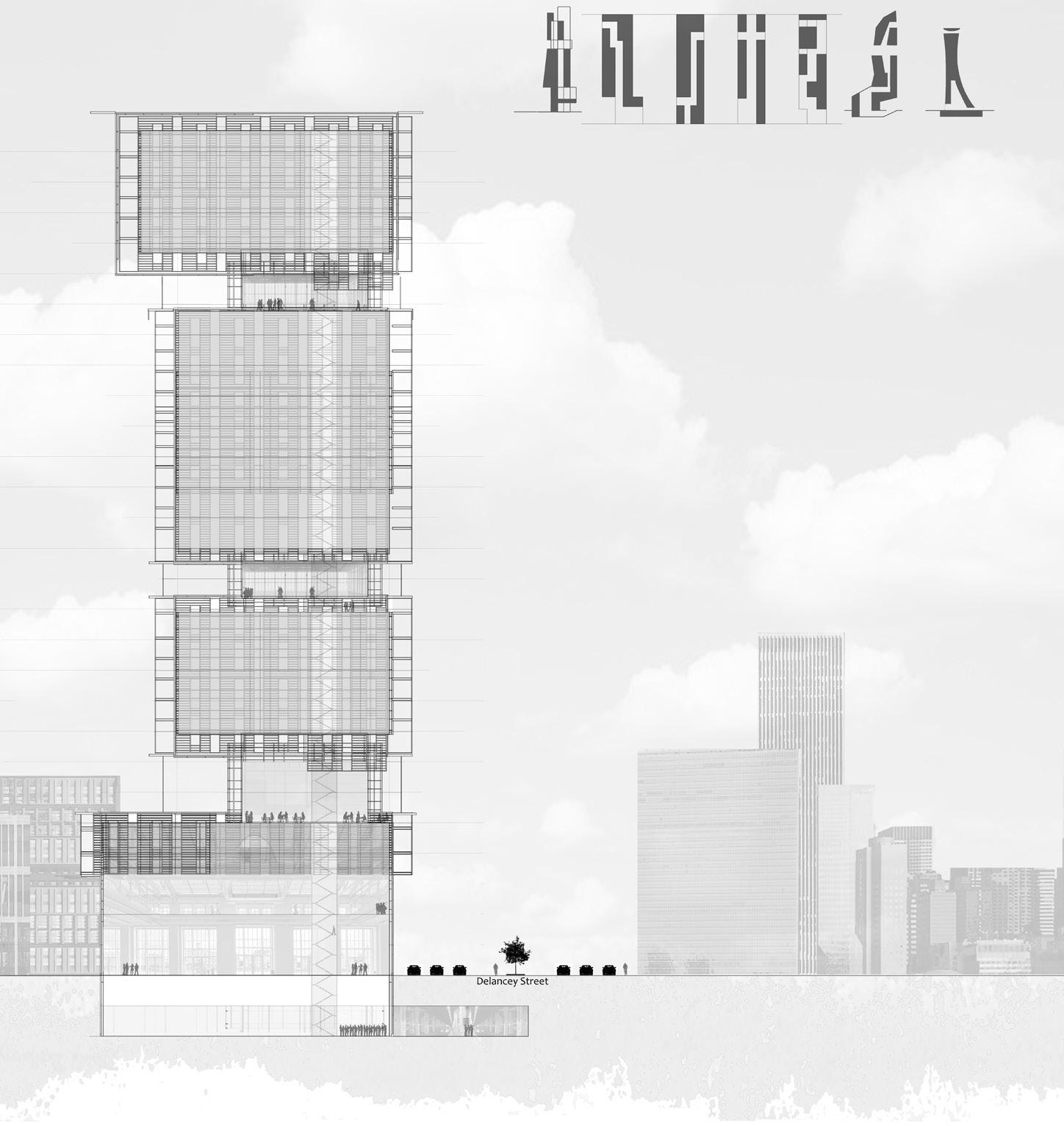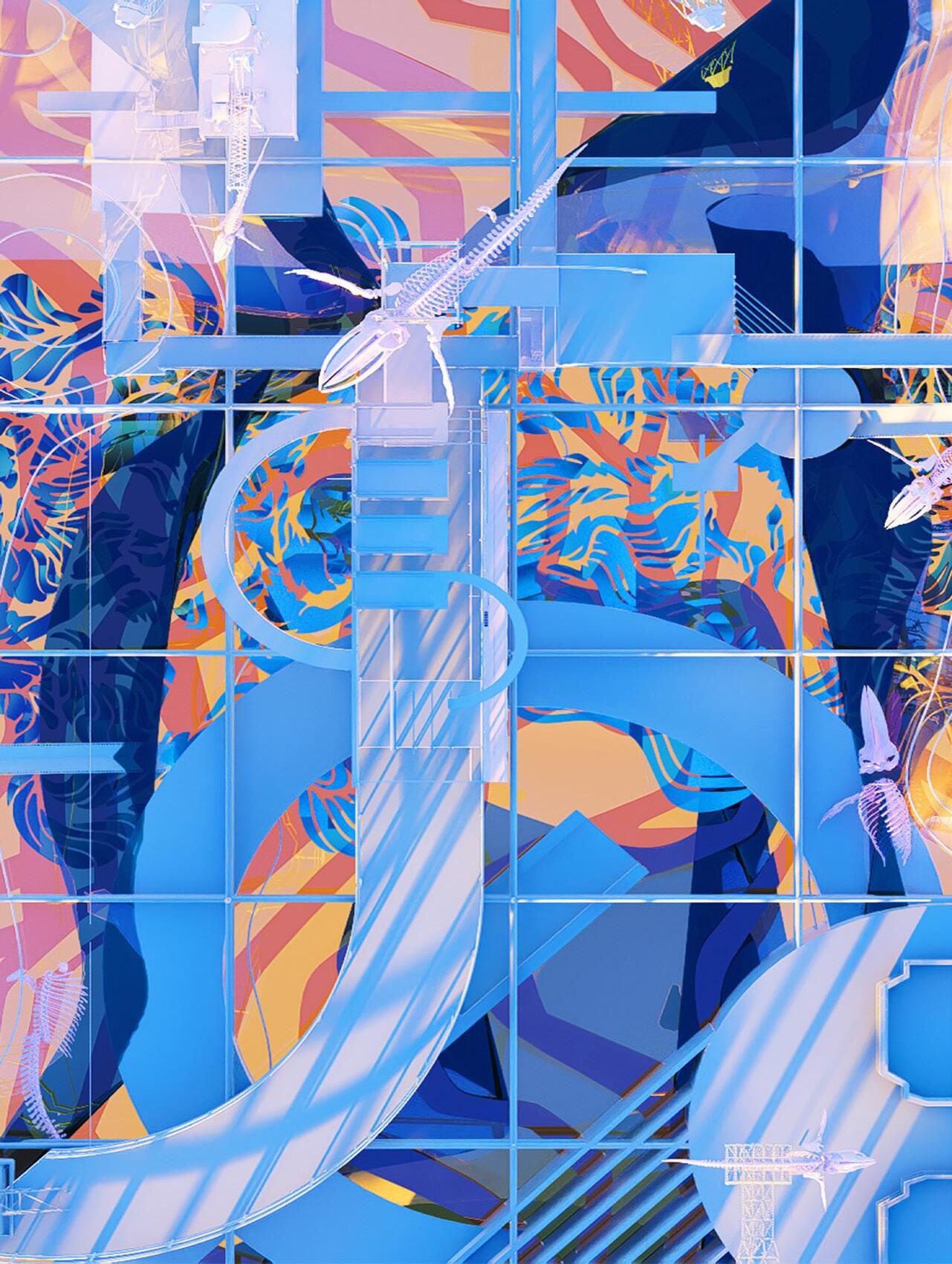JORDAN PARNELL

Portfolio 2025
University of Florida
University of Michigan


Portfolio 2025
University of Florida
University of Michigan
Movie Theater Institution
Professor: Gina Reichert
Individual Project
This movie theater prompts the question of why go out just to watch a movie, emphasizing the significance of shared experiences and possible encounters with strangers. By rethinking the traditional theater with a club-like aspect, it creates a space where people can socialize and debrief.
Whether sharing laughs in the talking booths or tearing it up on the dance floor, the atmosphere encourages people not only to witness the film but also to engage with each other, creating a vibrant social space.
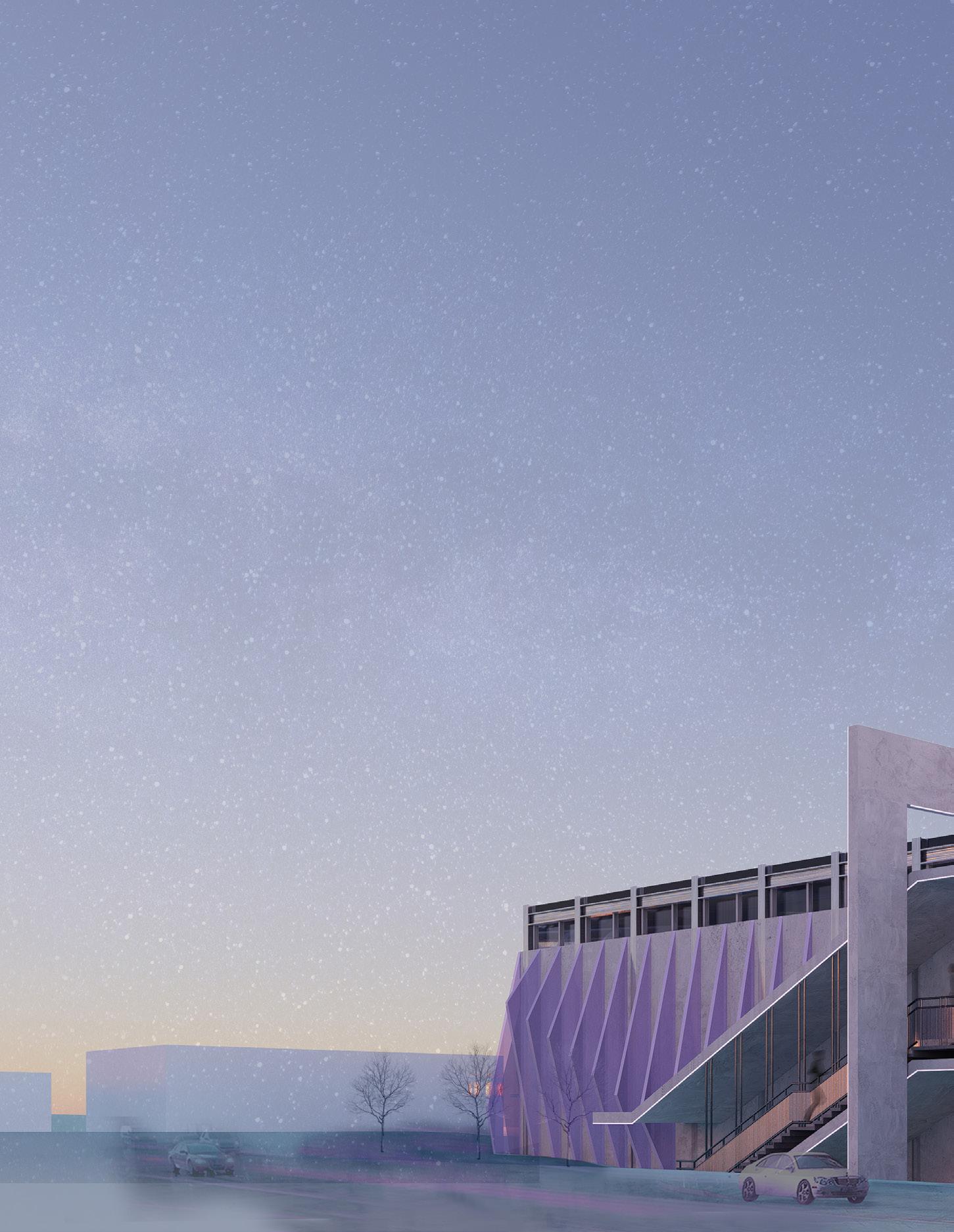
Building Information:
Total
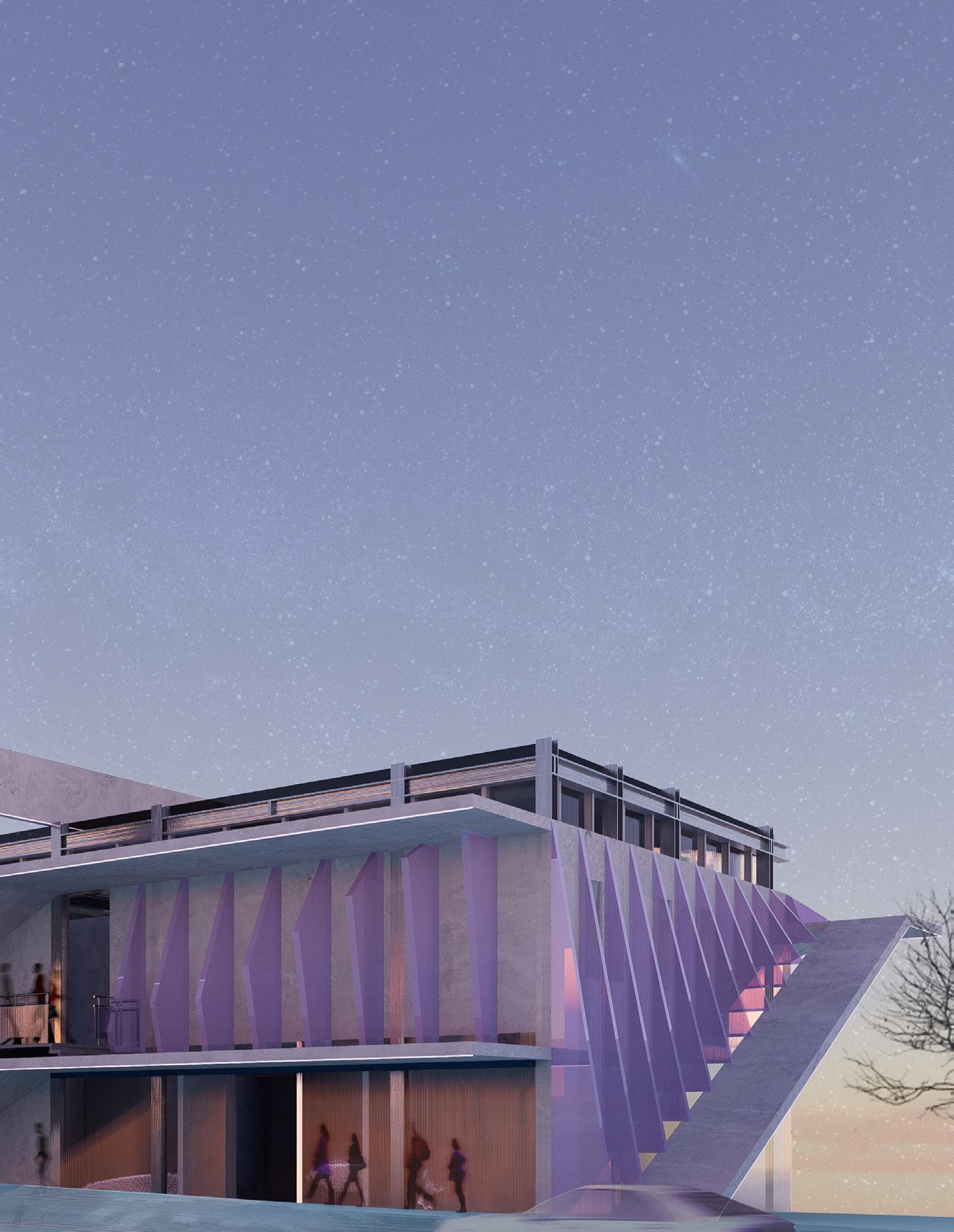
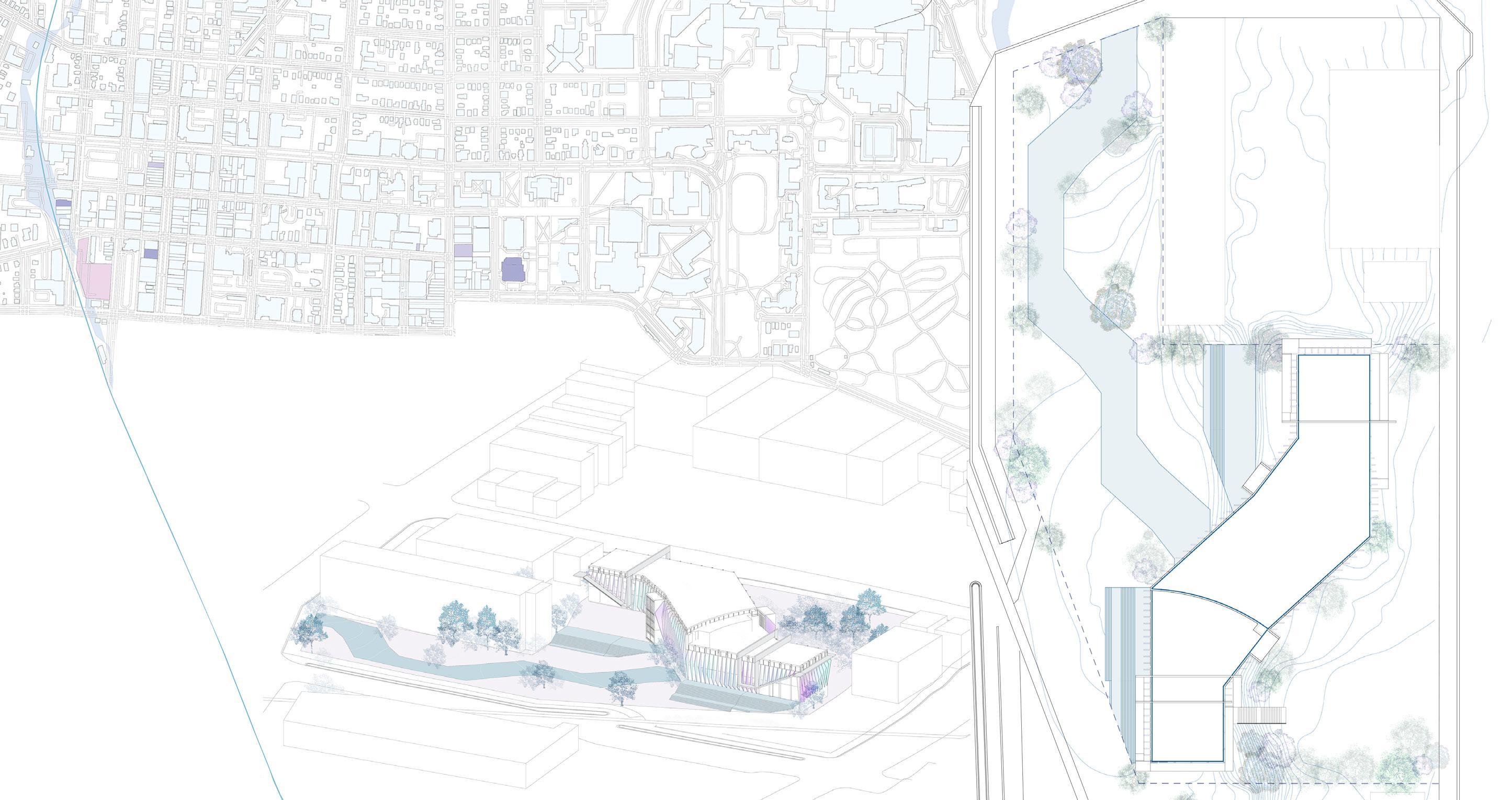
The building is designed upon a 24ft slope at the boundary between Ann Arbor’s downtown and residential areas. This pivotal location let’s the theater welcome people from all directions, and serve as the gateway to Ann Arbor nightlife.

Sketch of Circulation
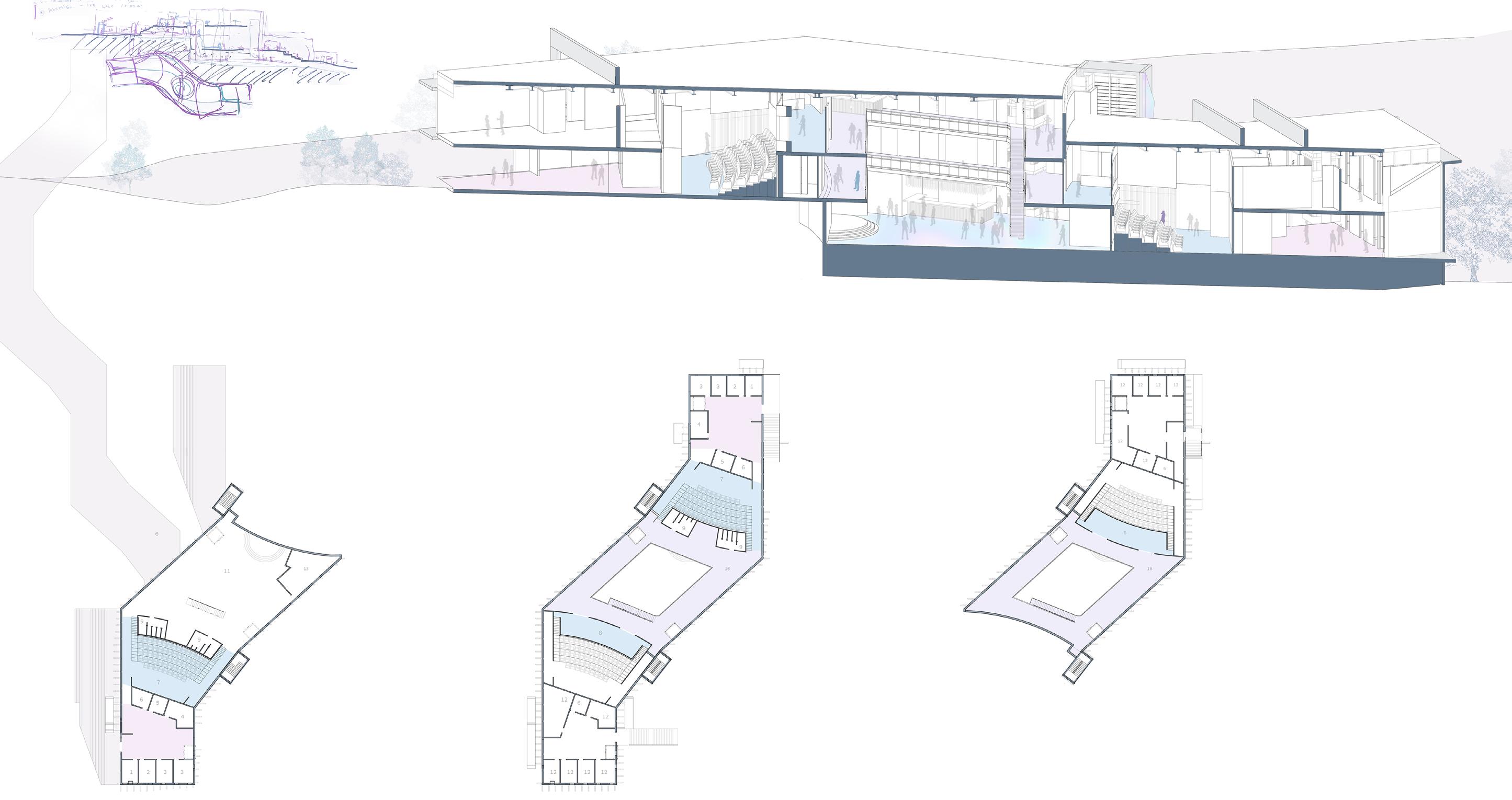
Upon entering from either side of the building, visitors encounter a lobby where they can drop off their coats, collect their tickets, and enjoy a refreshing beer. As individuals make their way to their seats, whether in traditional chairs or the innovative talking booths, existing patrons have the opportunity to observe the influx of new arrivals, adding to the communal atmosphere
After the film ends, an atrium serves as the threshold, linking the theaters to a three-story dance club. Here, patrons have the chance to transition from the cinematic experience to a lively dance floor. The setting not only allows for dancing, but also provides a space for debriefing and discussing the movie. This enables individuals to extend their social interactions beyond the cinematic realm and have conversations with strangers

Circulation
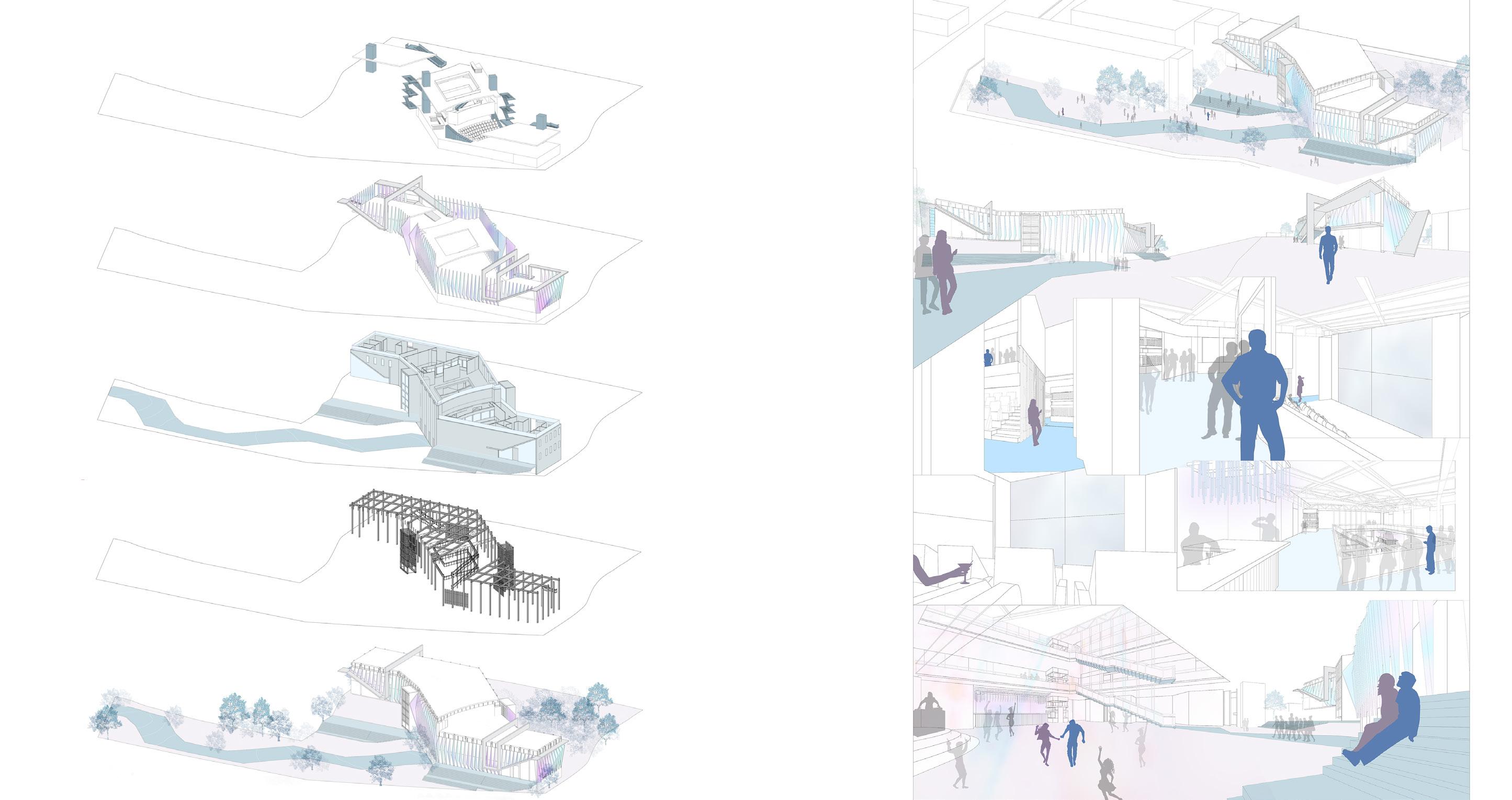
Building in the Site
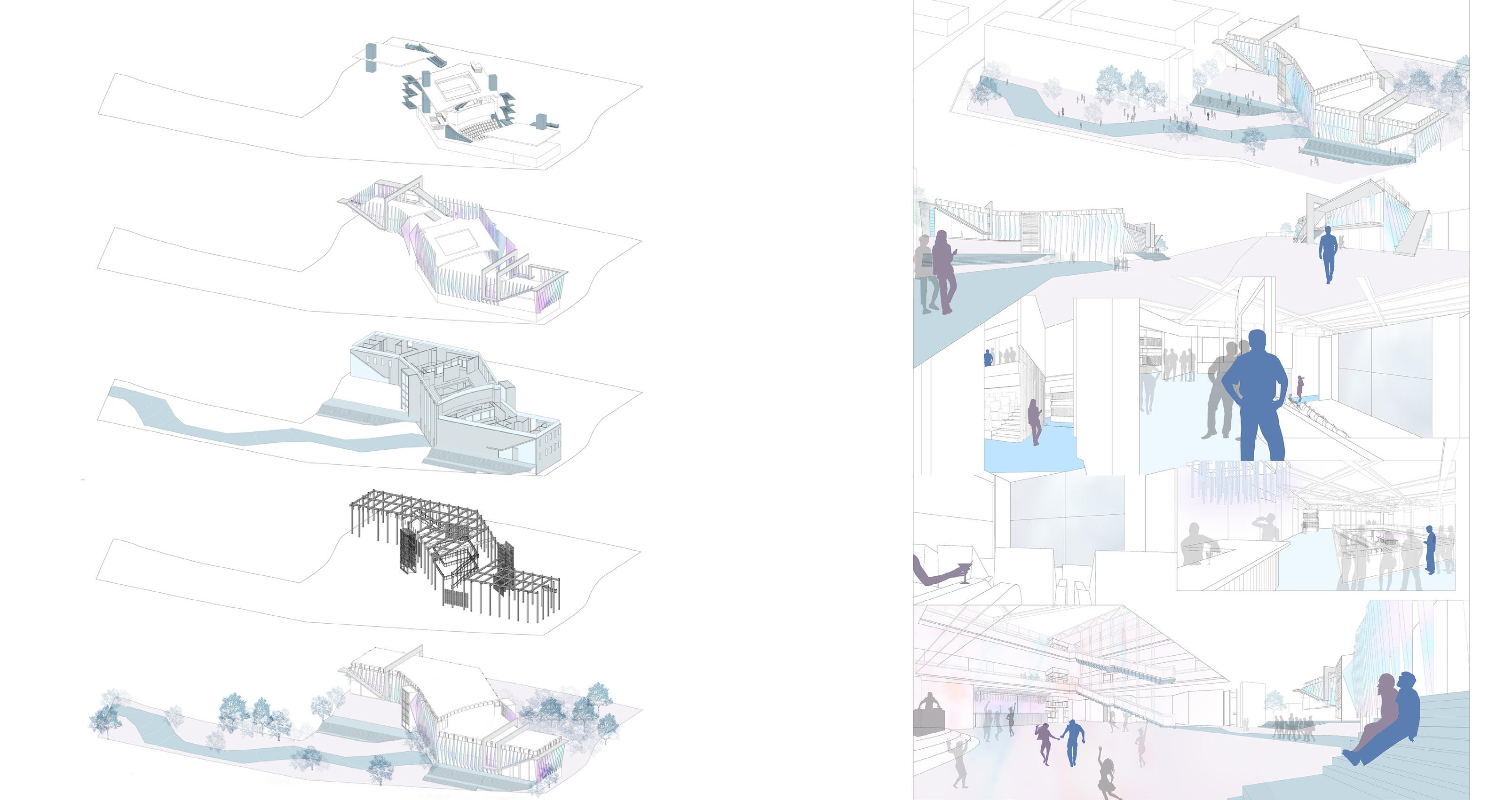
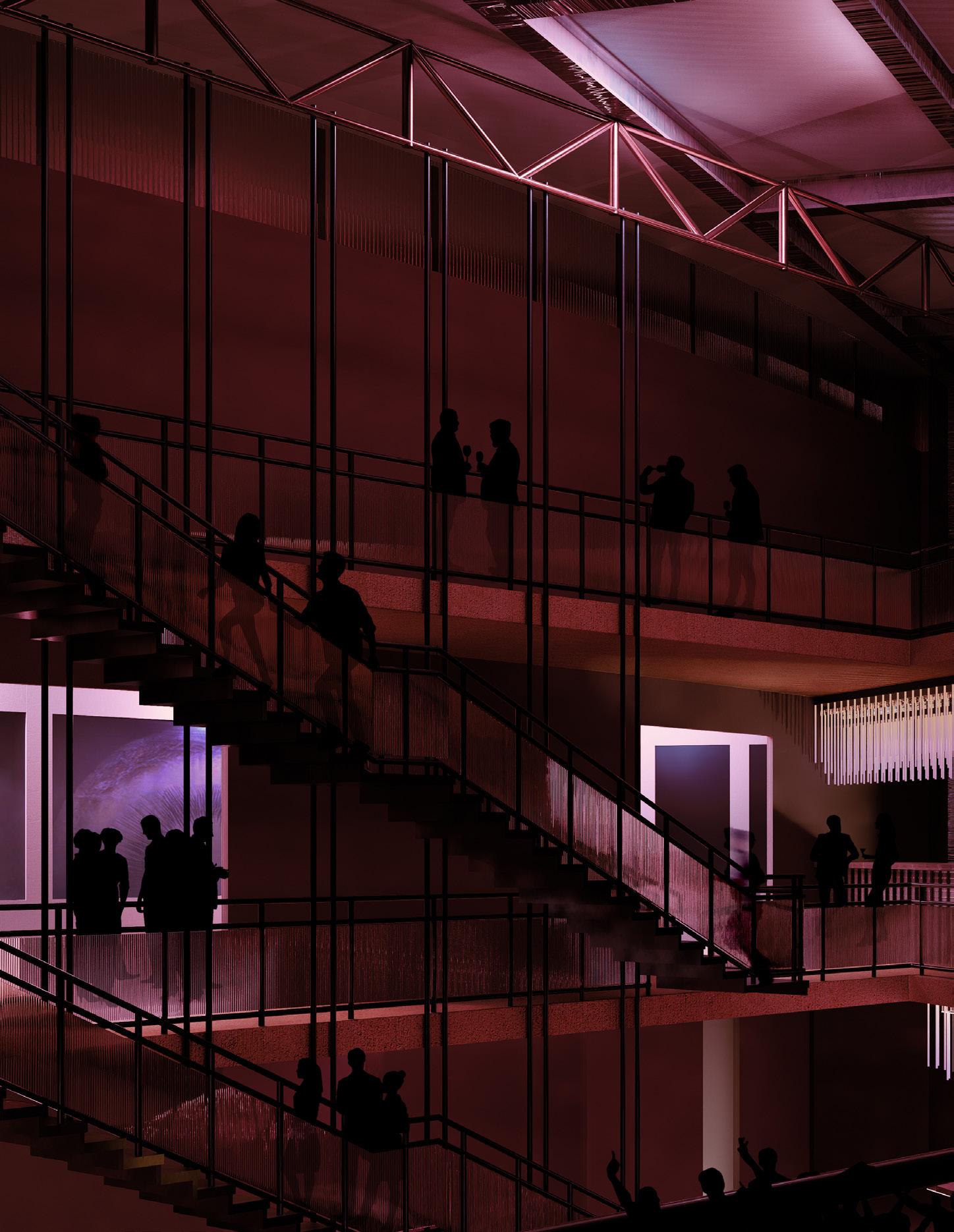
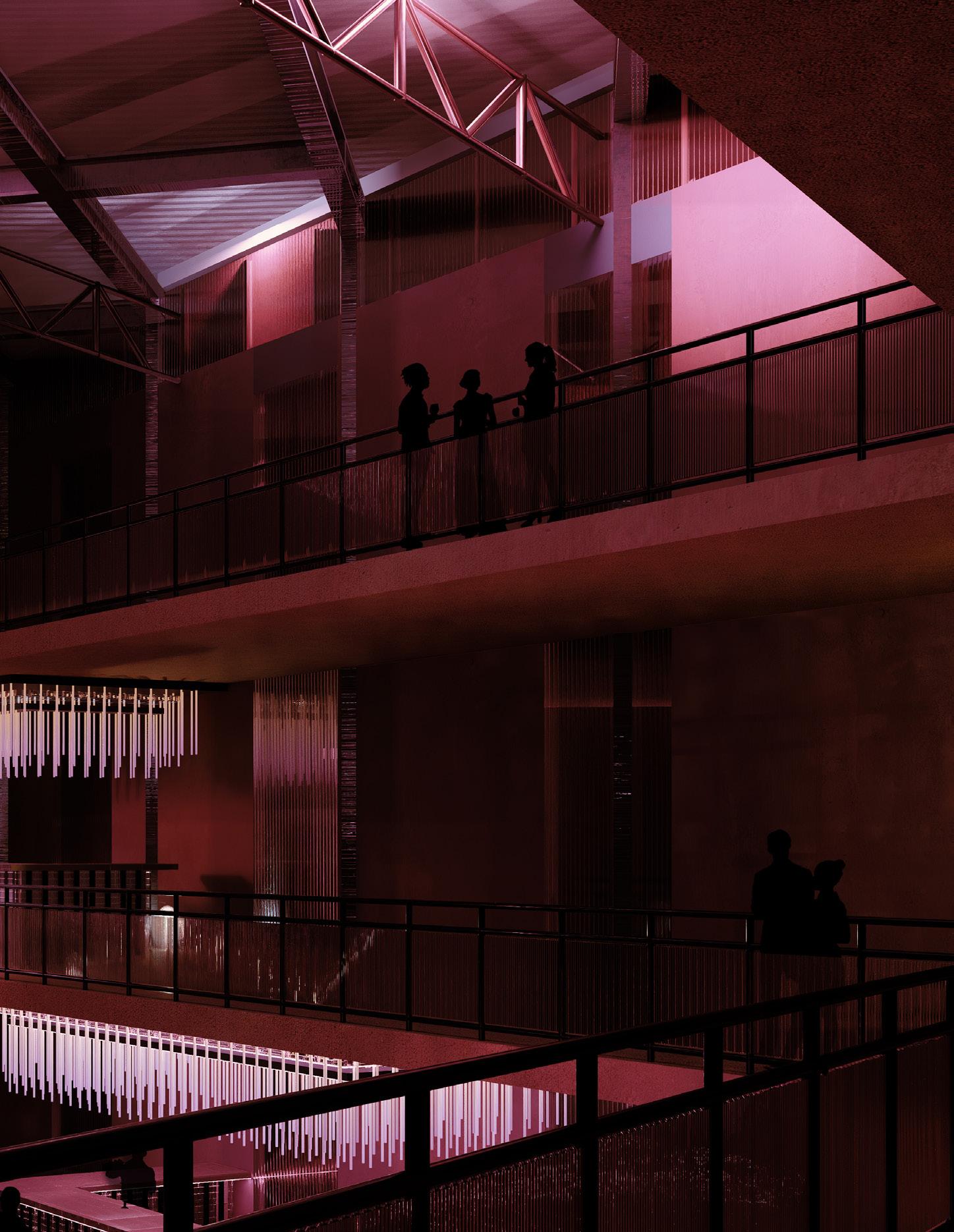


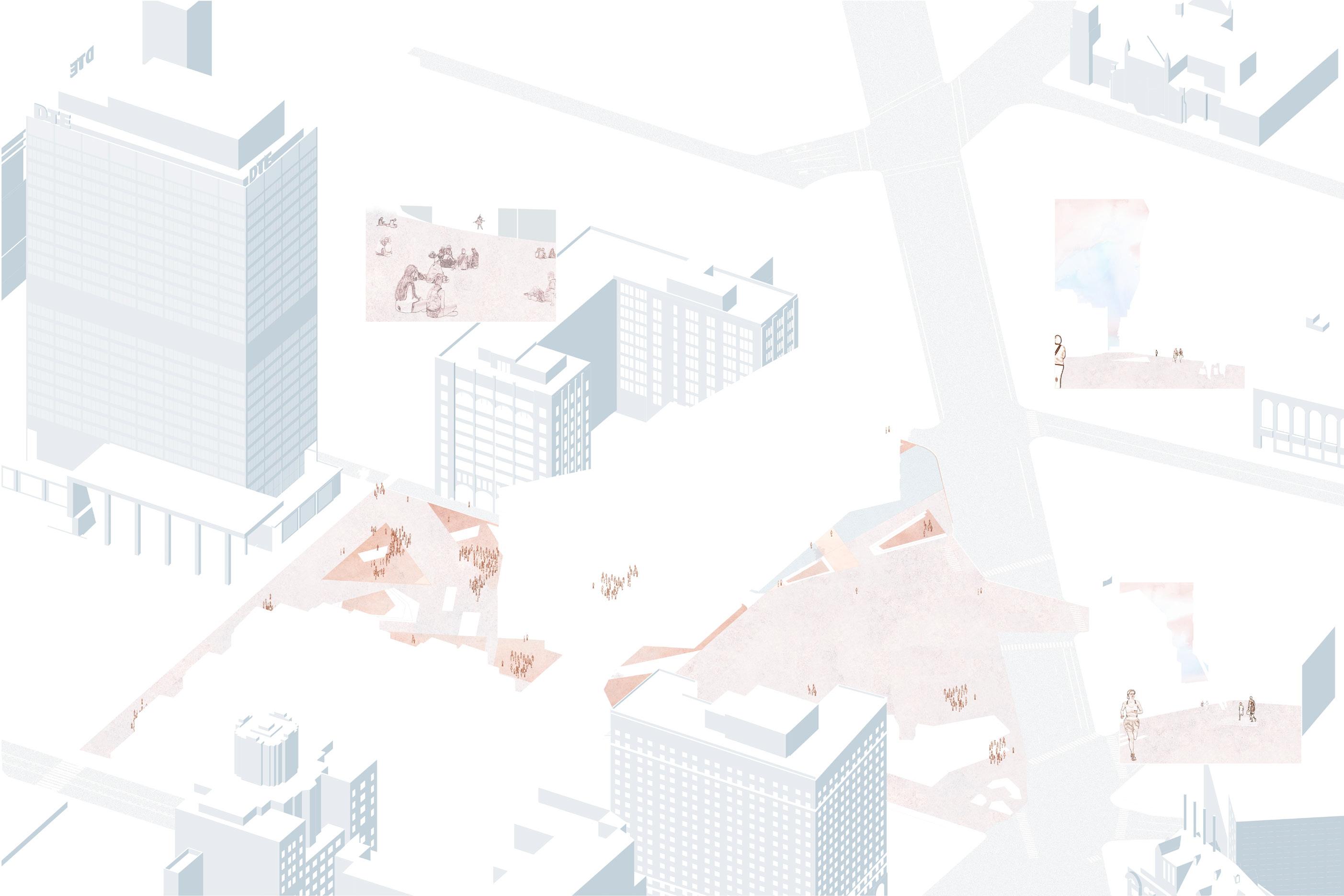














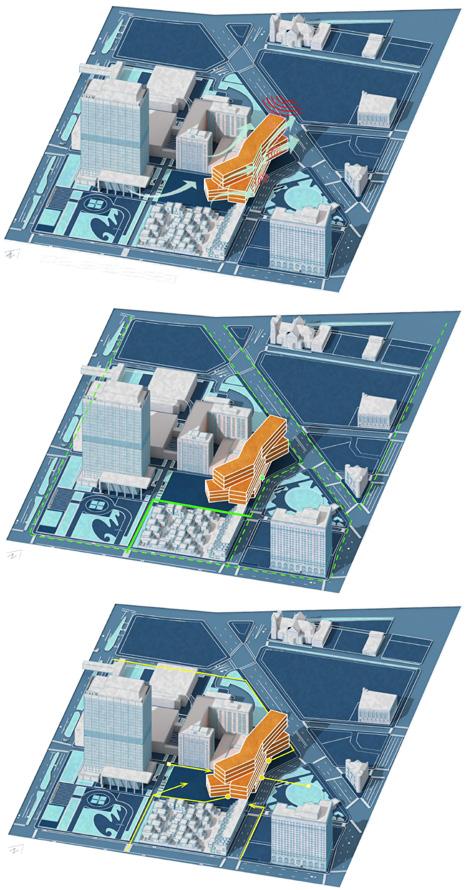
Winds from waterfront flow along the branched massing in different directions, mitigating wind tunnel effects
Facade areas facing major roads are minimized and maximized on less congested areas, providing more privacy within the inside lawn
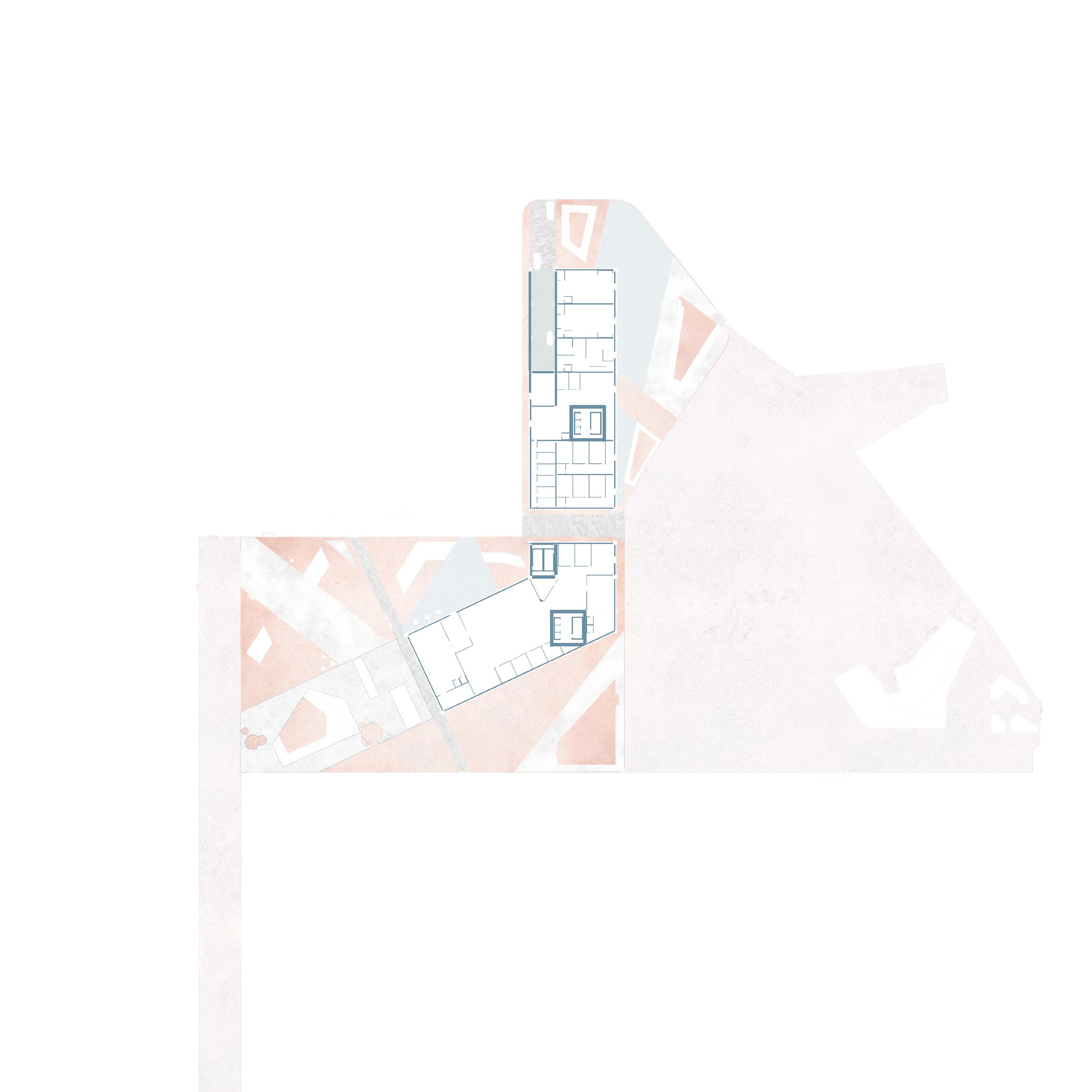
Accessible bike lanes located on major roads
Building opens up to greenway to create a wider access into beacon park while also welcoming riders onto the site
Three major entrances are located near the street-side of the site, giving access to any pedestrians traveling on sidewalks. Riders, joggers, and walkers have more private access from the greenway

Exploded Axon of Programs
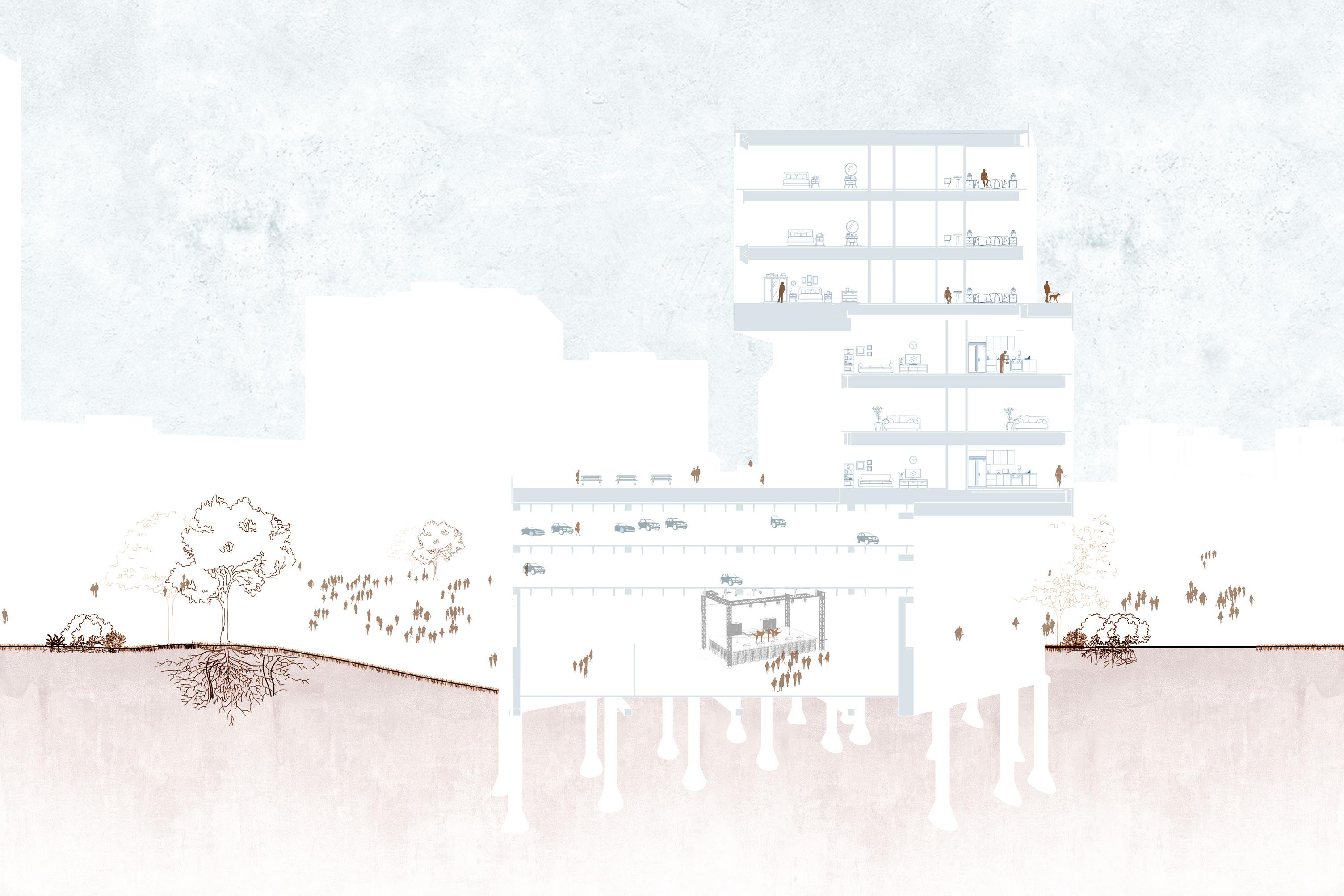
The public programs predominantly occupy the ground floor, fostering urban engagement with diverse retail, coworking spaces, and a venue/bar, enhancing the appeal of Beacon Park and its local businesses. With parking situated above, the upper levels are devoted to residential spaces, ingeniously incorporating semi-private amenities for residents.
This design not only activates urban spaces but also elevates the area’s allure, turning it into a vibrant destination for both daytime activities and nightlife.

Three expansive terraces cater to varying needs: a recreational area for fitness activities, a communal space with flexible seating arrangements and leisure amenities, and a serene pollinator garden on the seventh floor, providing a tranquil retreat.
Elevator top
Parapet MEP sloped roofing system
Roof system (insul./memb.)
Cross steel beams
Steel frame (girders + beams)
Steel cross bracing
T-Bars
Concrete column & beams
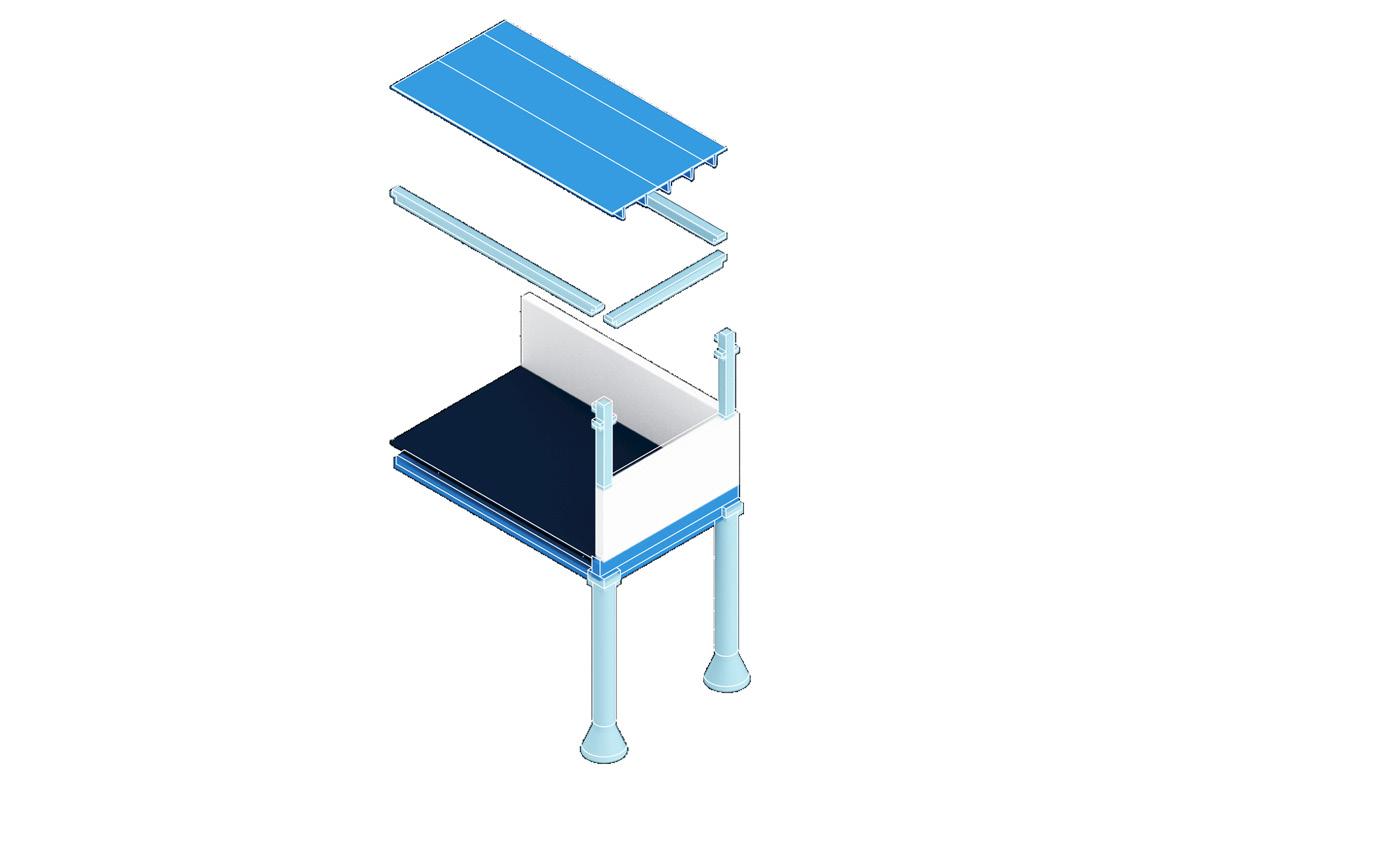
Concrete Cores
6” Concrete Slab
Grade beam (42”)
Caisson
2’ Basement wall
Steel columns

6” Conrete slab with metal decking
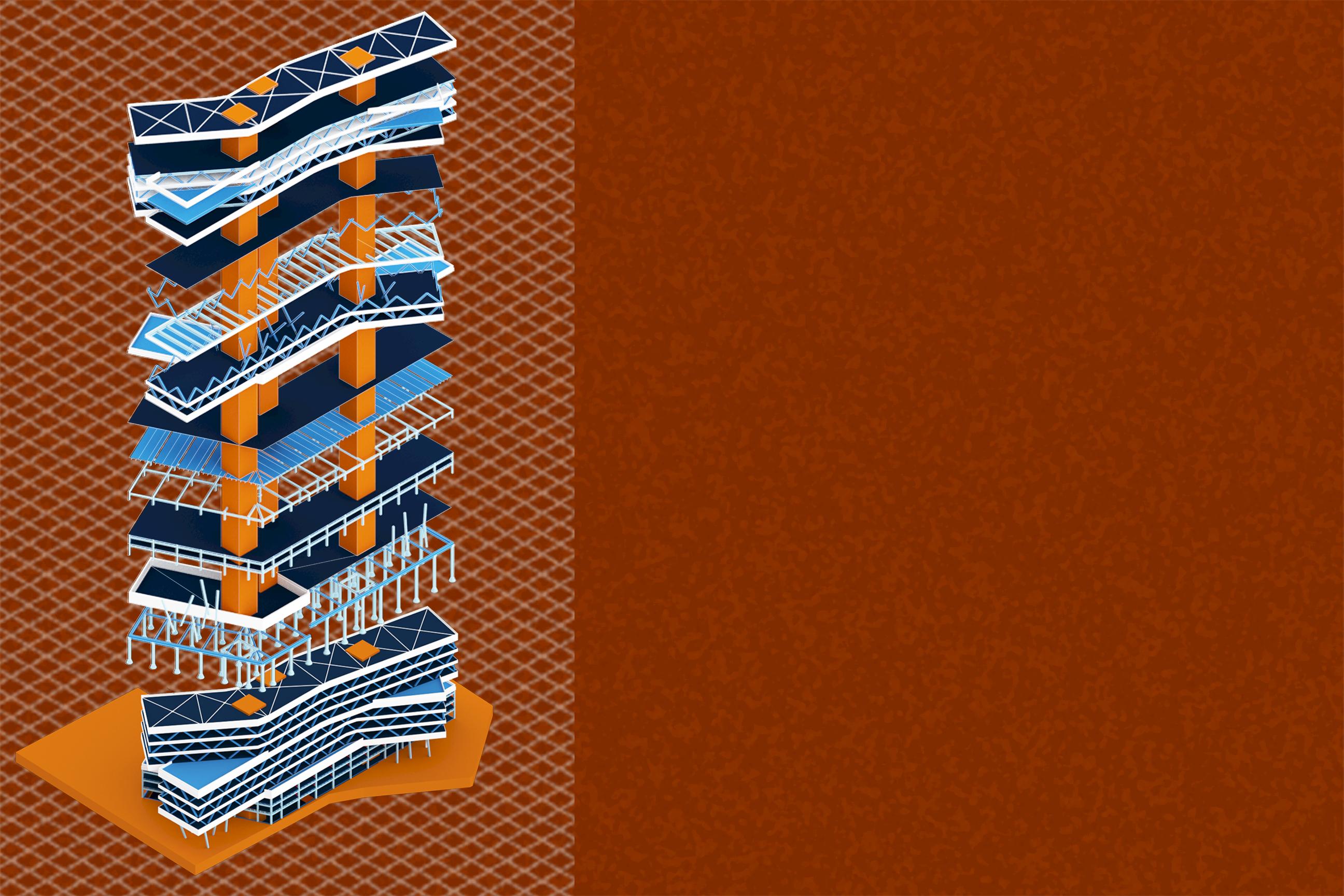


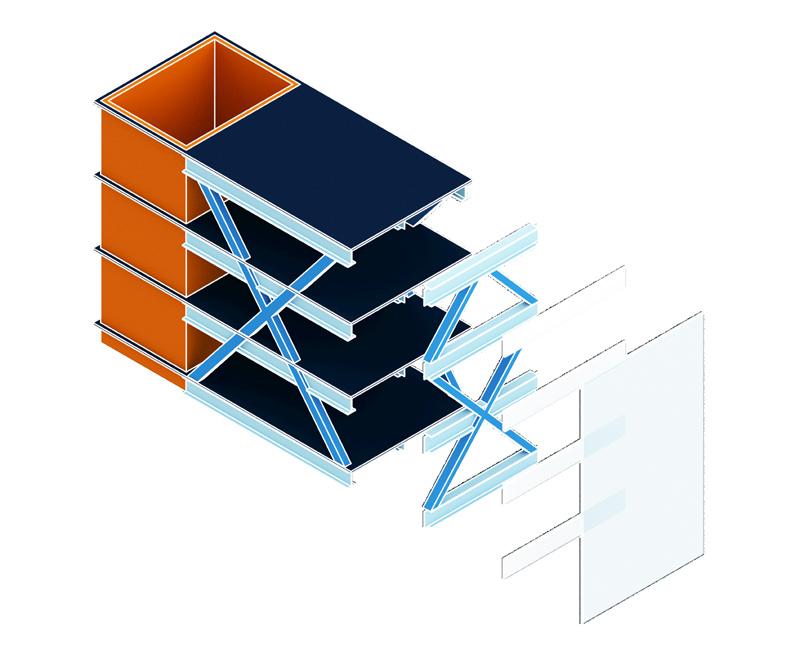



Furniture Table
Professor: Michael Kennedy
Individual Project
The “Lumber Chimera” is an experimental blend of timeless design principles and modern sensibilities. This unorthodox dining table utilizes not one but seven different species of wood in its design, providing a unique blend of textures and colors that add a singular richness to its composition. It is an investigation into how a radical blend of materials and design strategies can harmoniously manifest a piece of art that is both beautiful and practical.
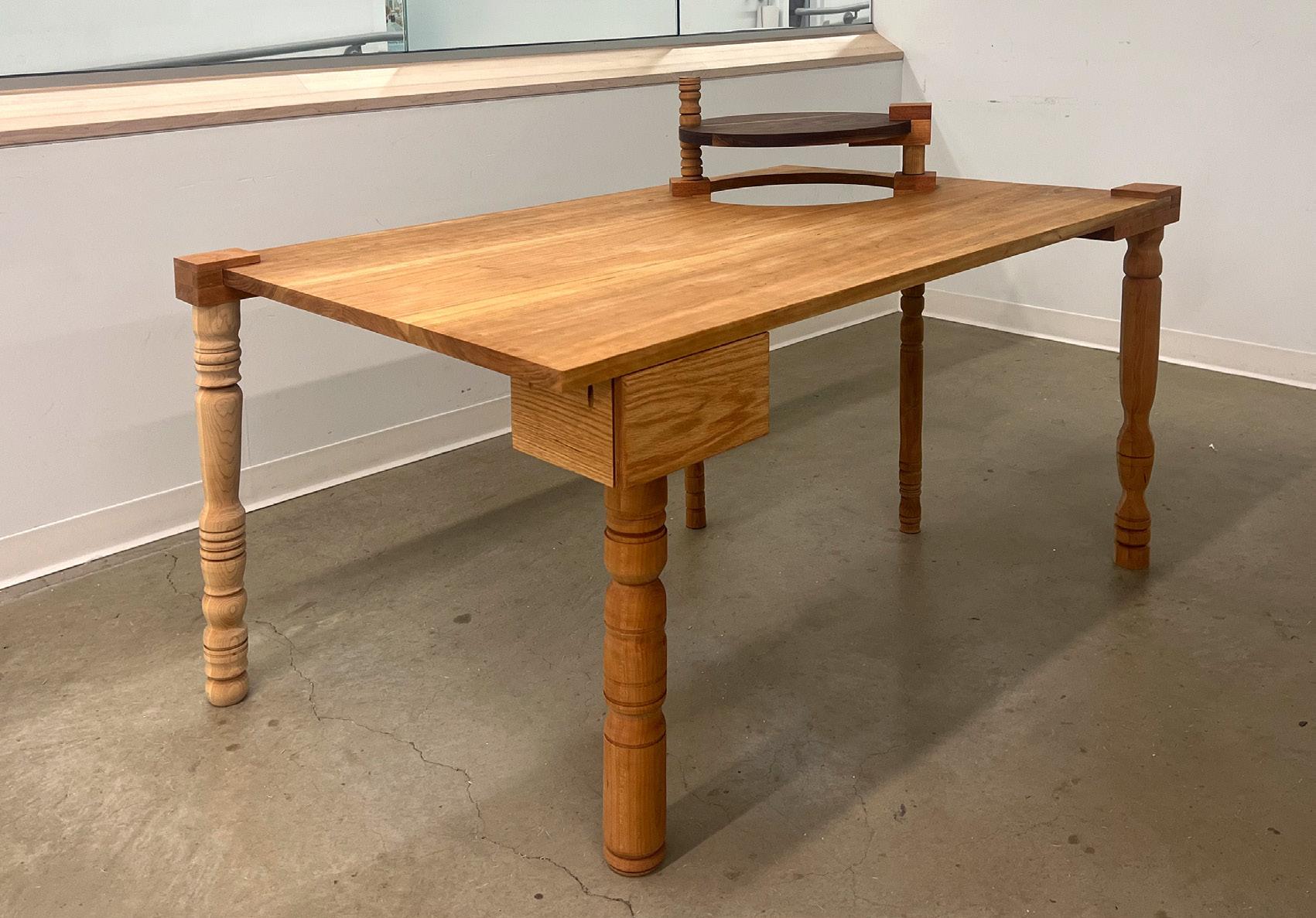

Massing Models for Proportion

Furniture, University of Michigan
The Chimera sits atop five handcrafted legs, each of which displays a complex array of curvature only achievable through skillful implementation of the lathe. The entire piece pays homage to Gio Ponti’s emphasis on proportion and formal variation
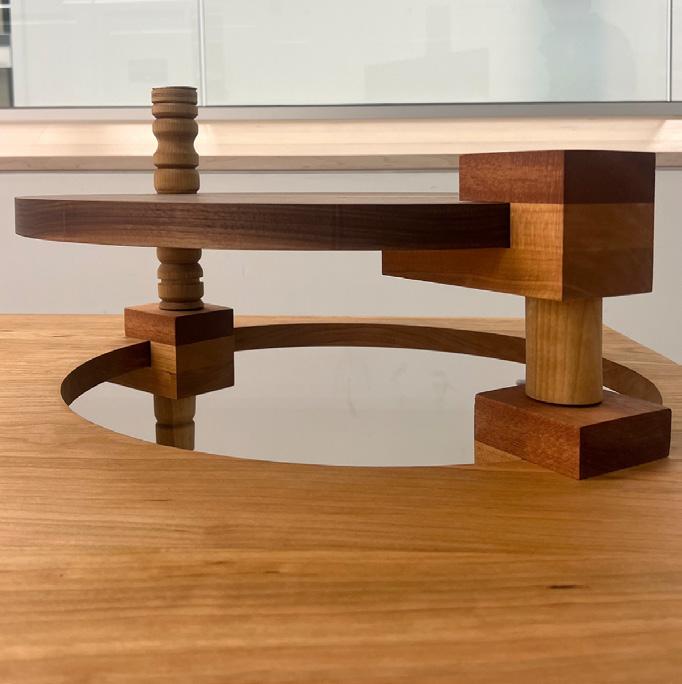
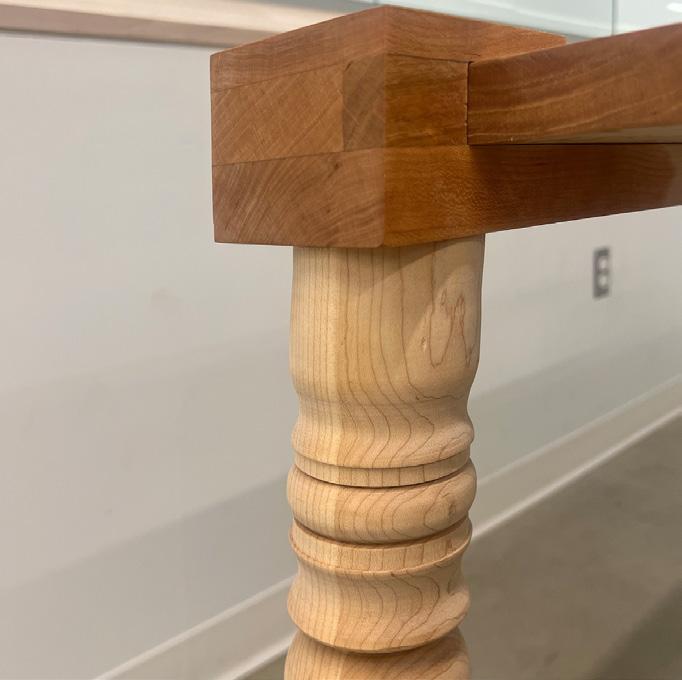
The Lumber Chimera was an exploration on how to use the golden ratio as a framework for dimensions and geometry. fundamental concept is visibly highlighted the raised circular form at one corner, forms the basis of the table’s proportions.
Furniture, University of Michigan exploration guiding geometry. This highlighted by corner, which proportions.
Professor: Alfonso Perez
Collaborator: Thomas Magee
In 10 years, people will be able to study in Chelsea” s “Semester in the City” city lab program. This campus proposal is for students and faculty housing and education. It is ideal for providing a neighborhood for students in an urban setting. With the location being “Chelsea’s Art District,” students can engage in cultural and recreational experiences within the neighborhood.
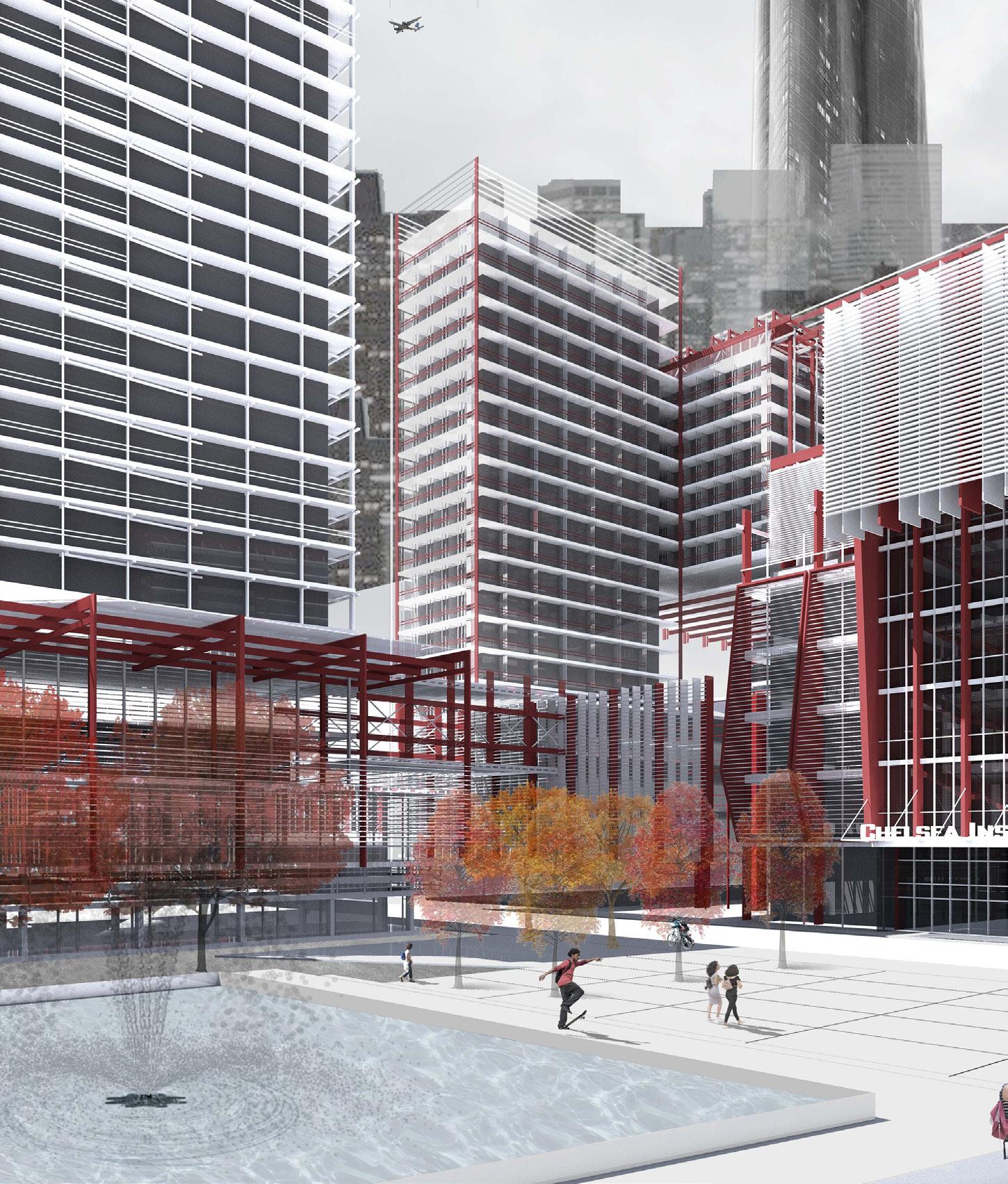
Building Information:
Total Building Area:
Total
Student Dorms:
Faculty Dorms:
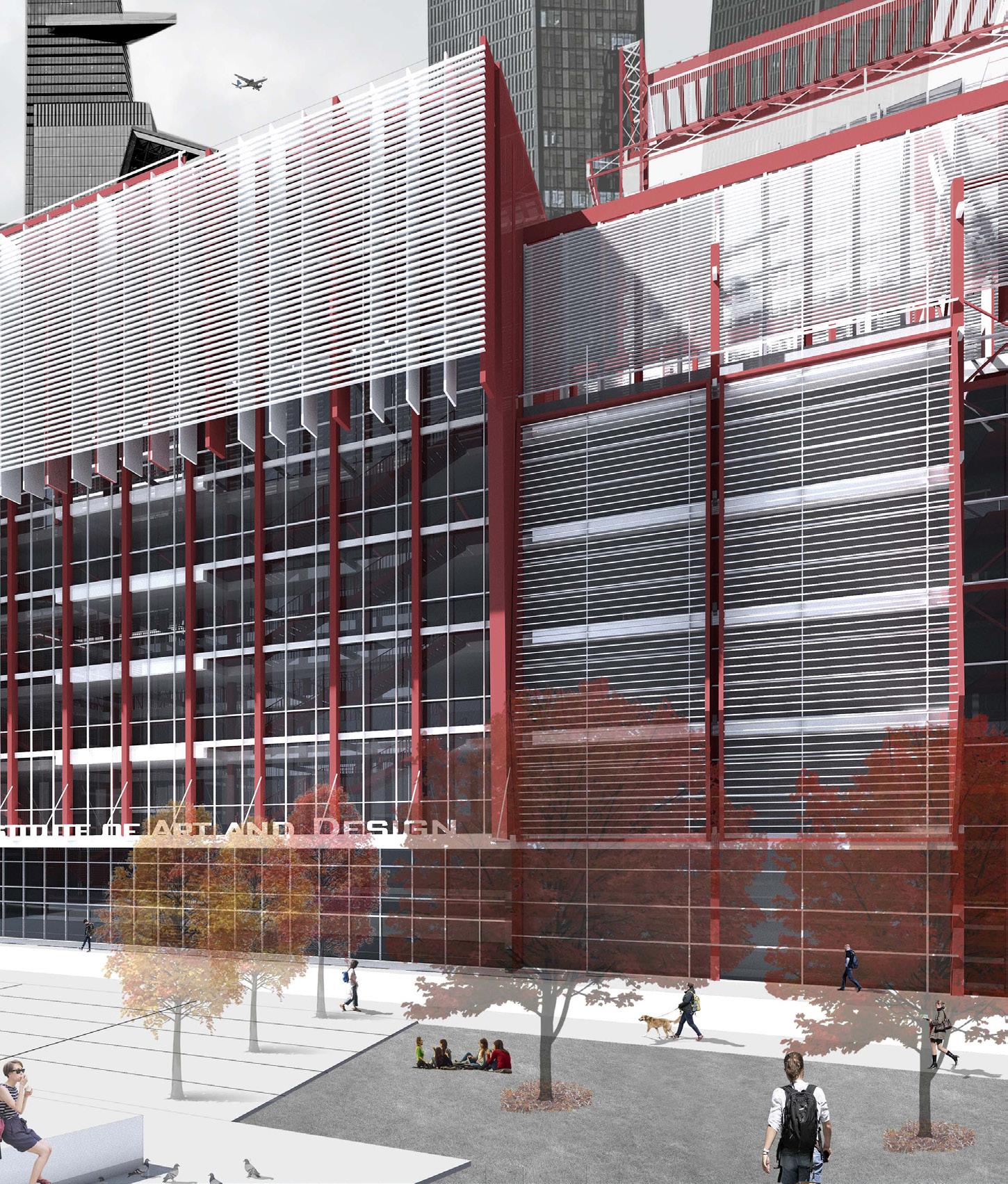
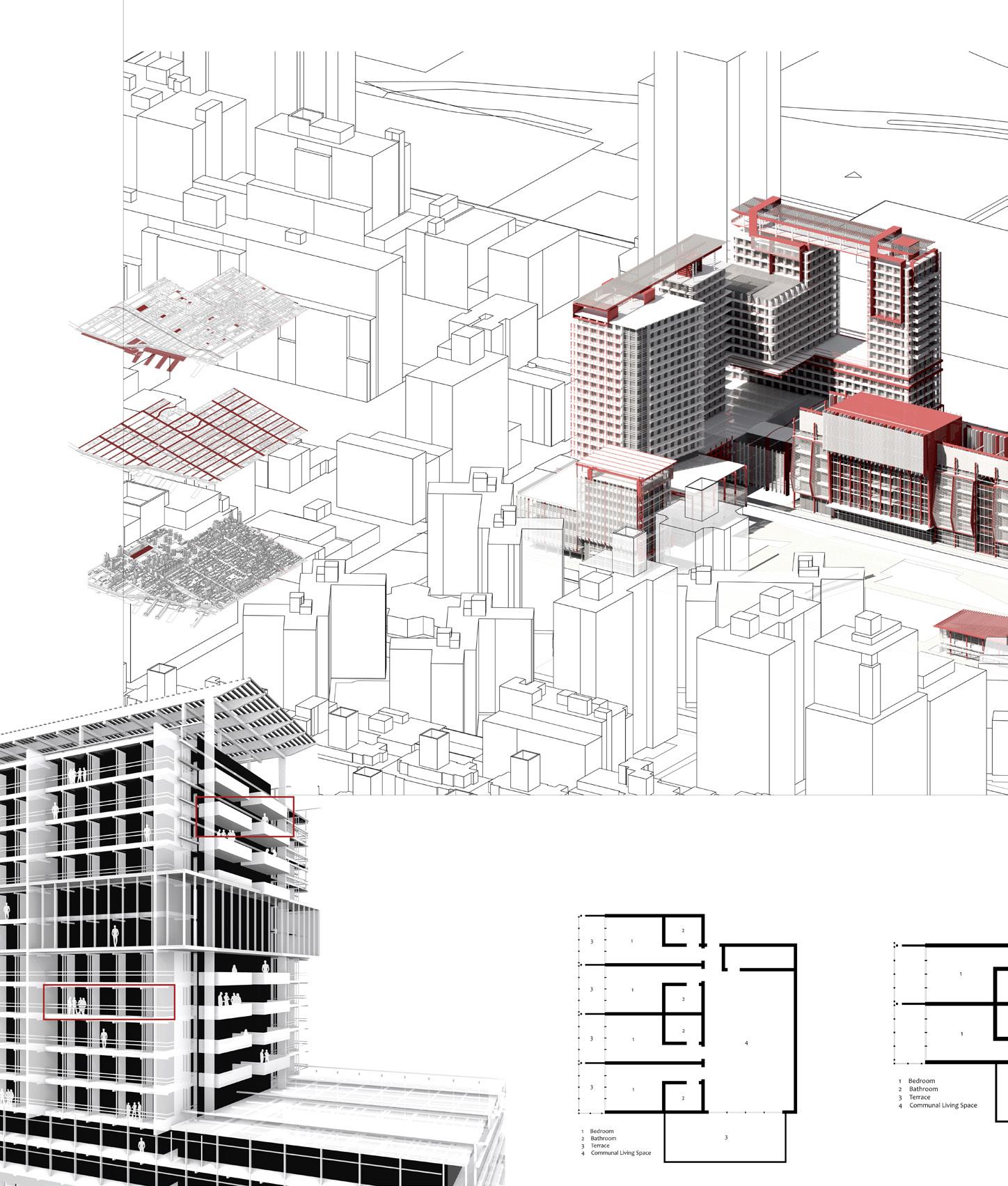
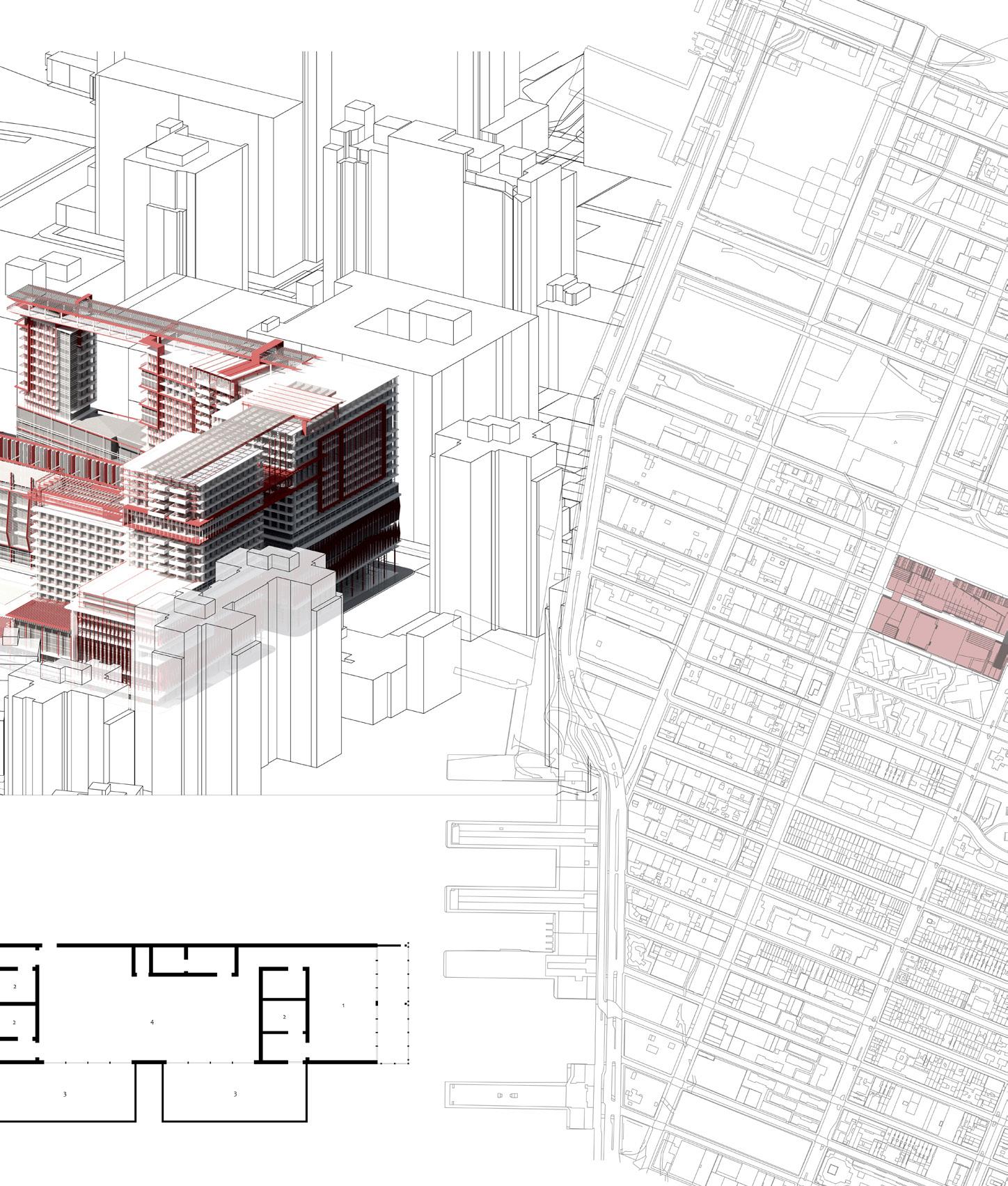
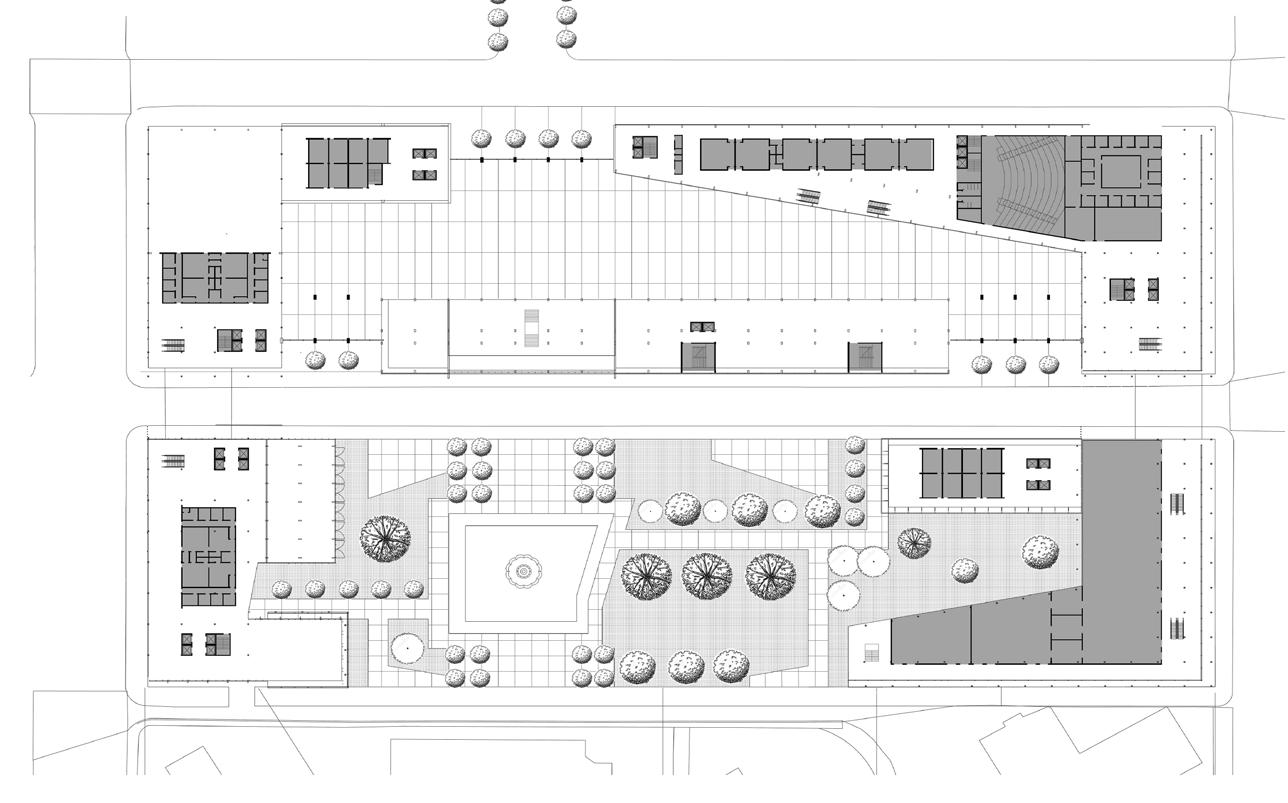
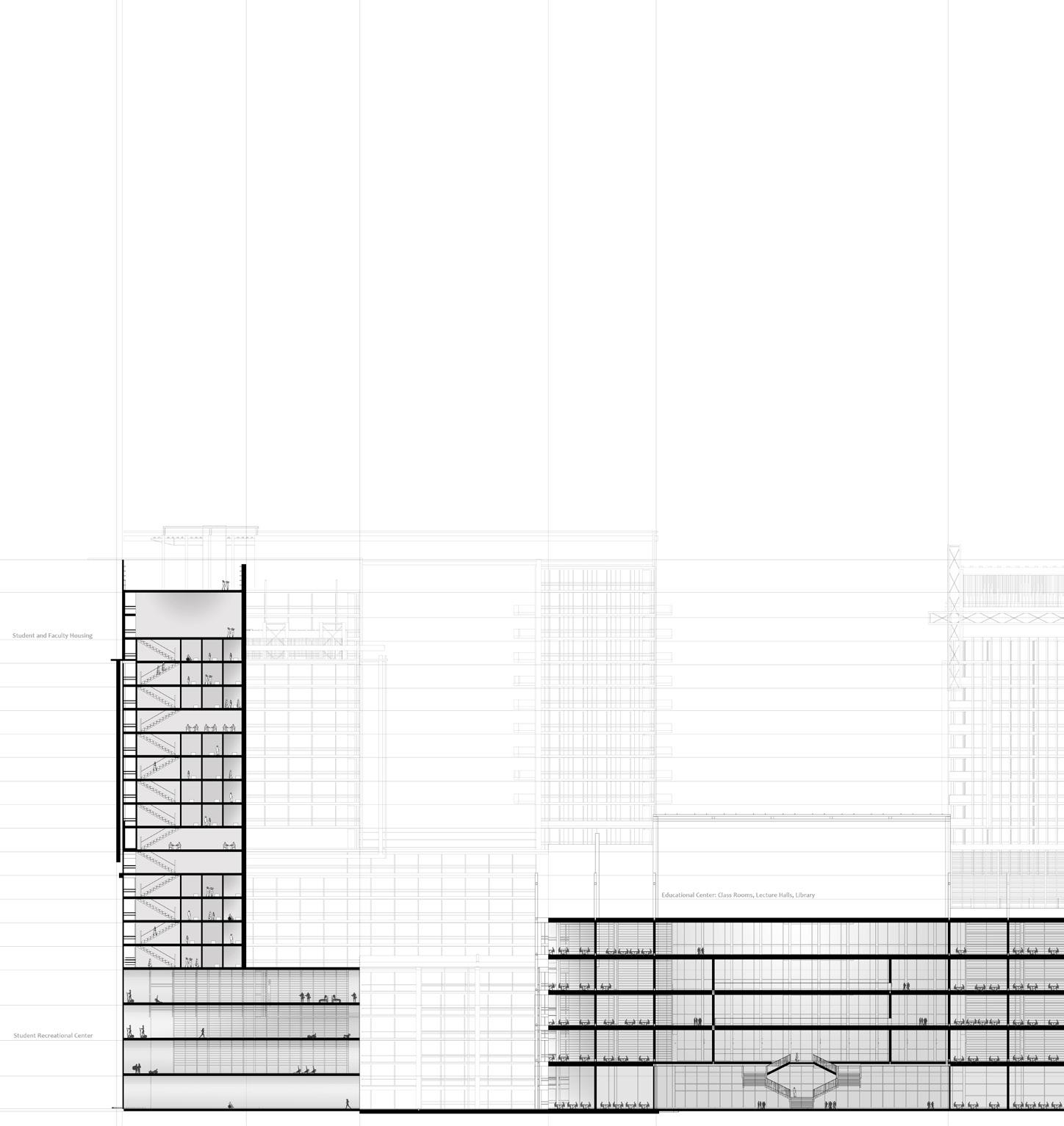
At CIAD, there are spaces where students come together. Lived experiences are critical for a young person's development; therefore, providing spaces for engagement in discussion, debate, and relationship building is essential.
By building resident halls, student centers, civic spaces, cultural and art spaces, music halls, and other facilities, students can together and grow a campus community
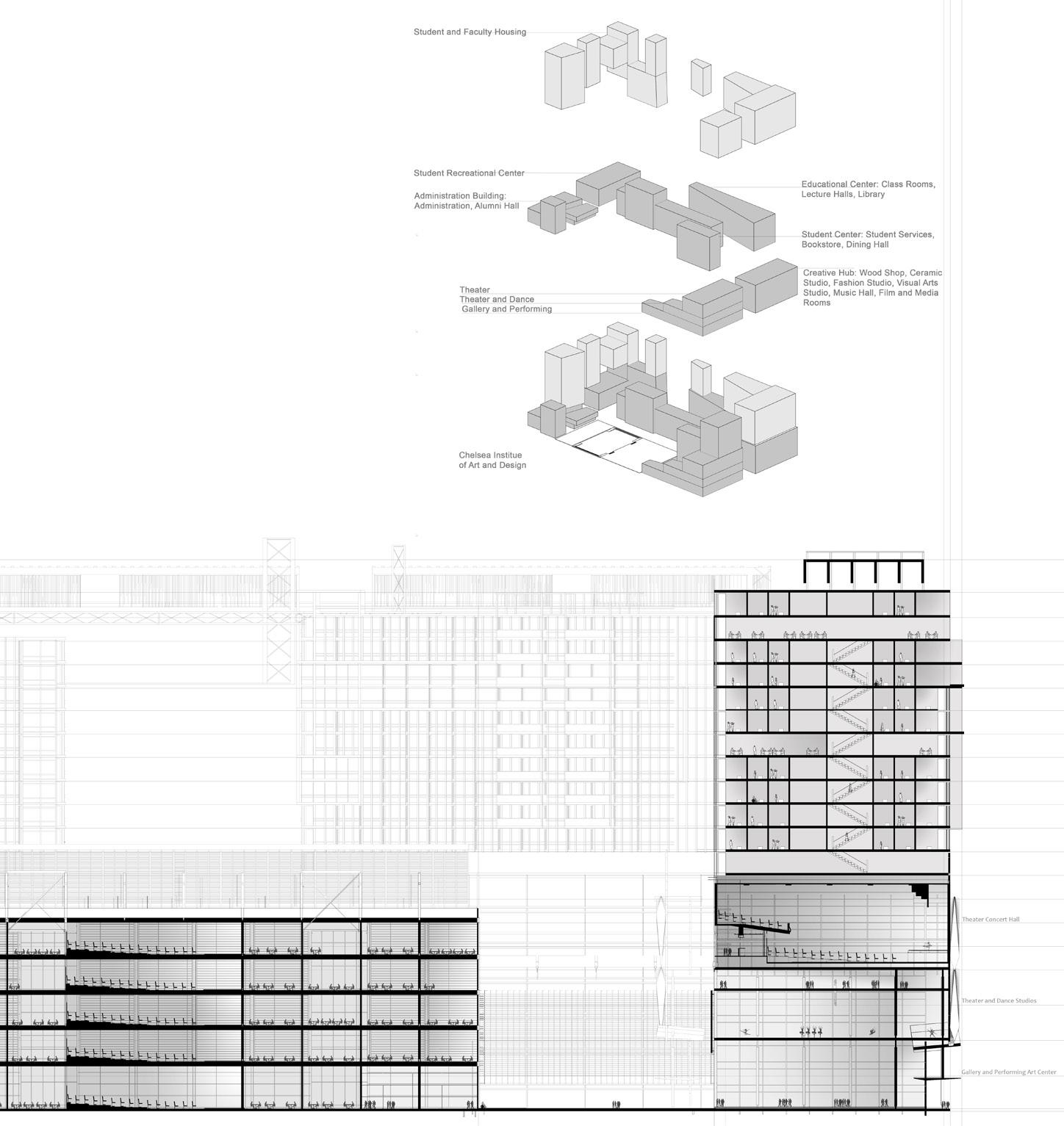
Exploded Axon of Programs
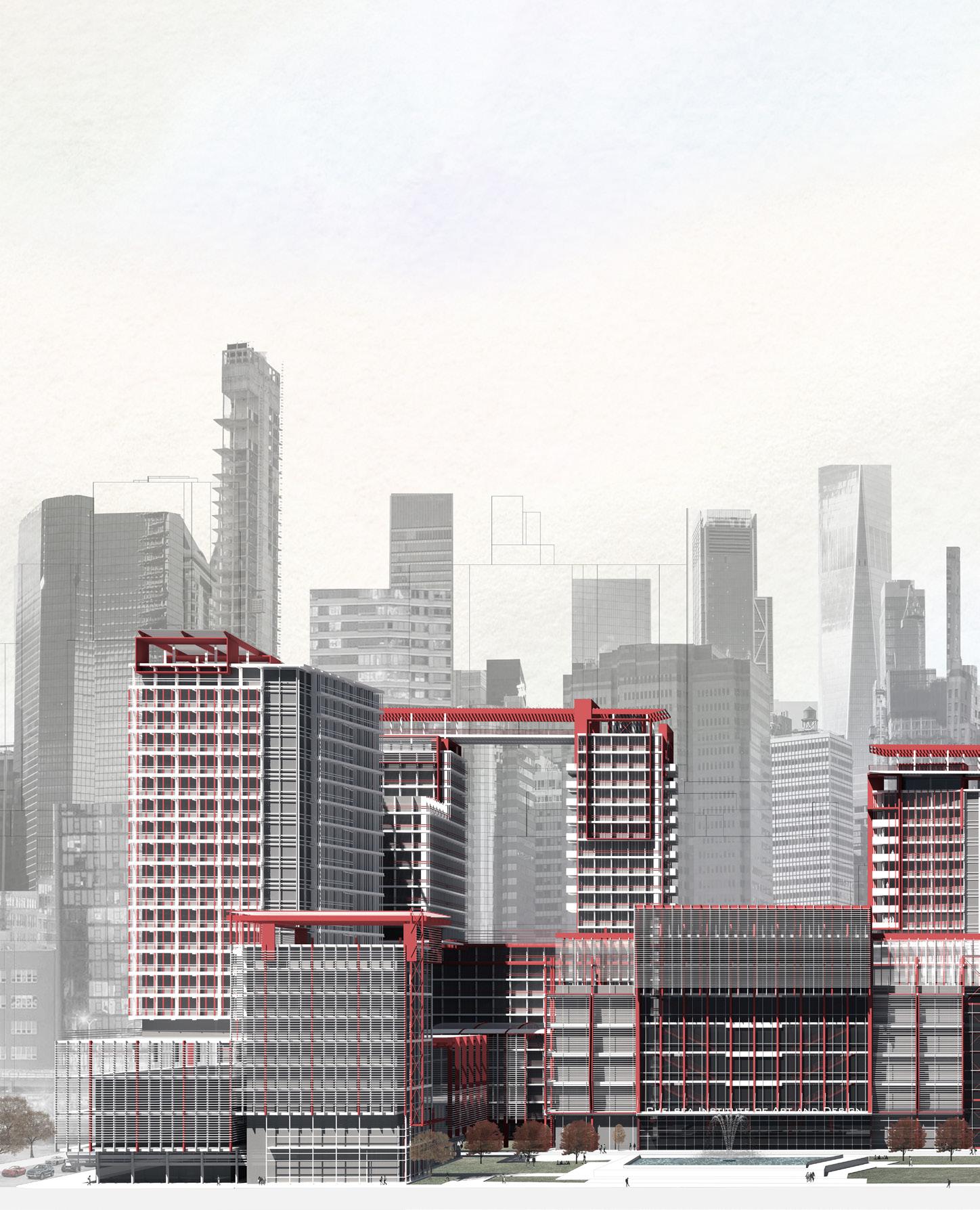
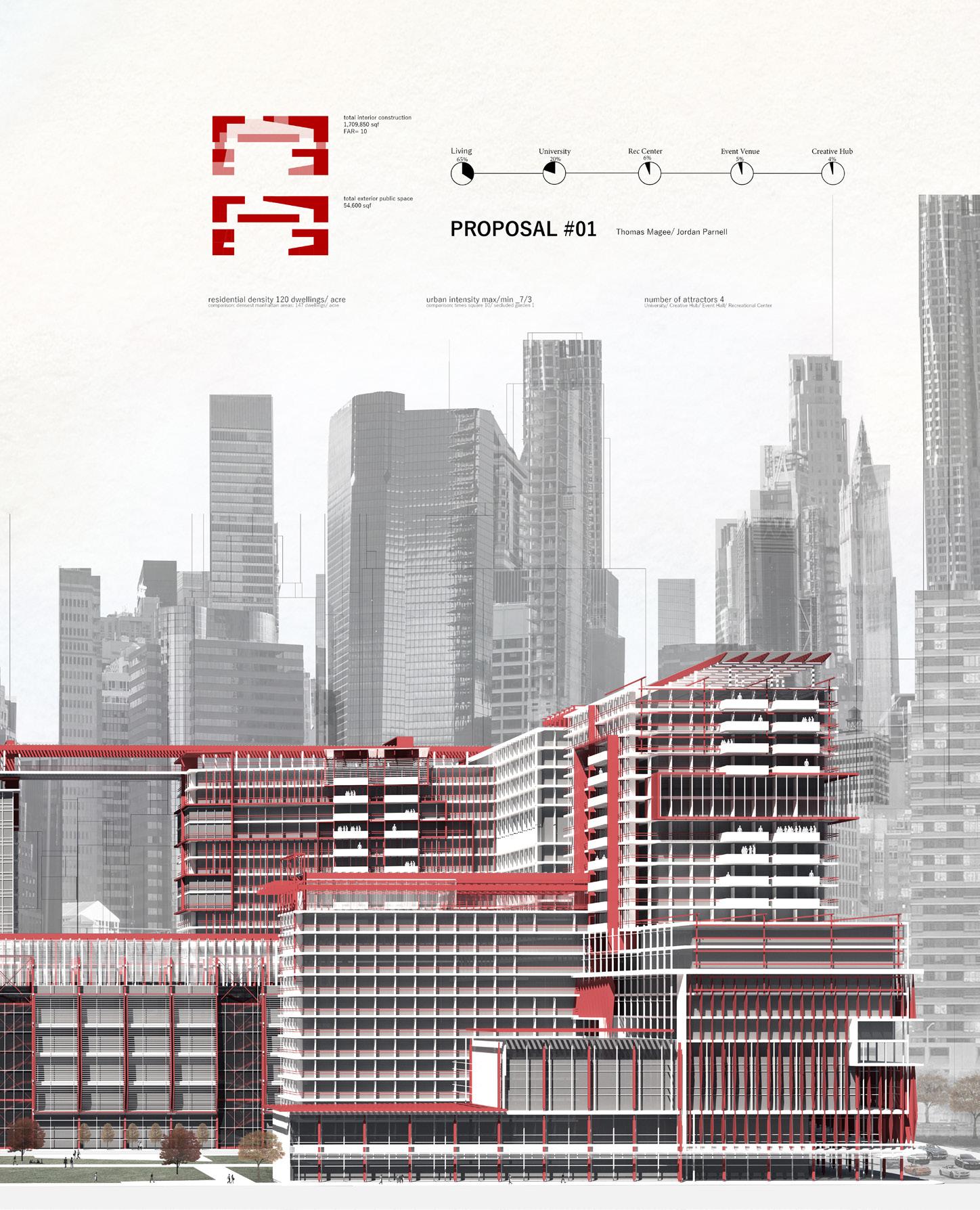
Professor: Perry Kulper
Individual Project
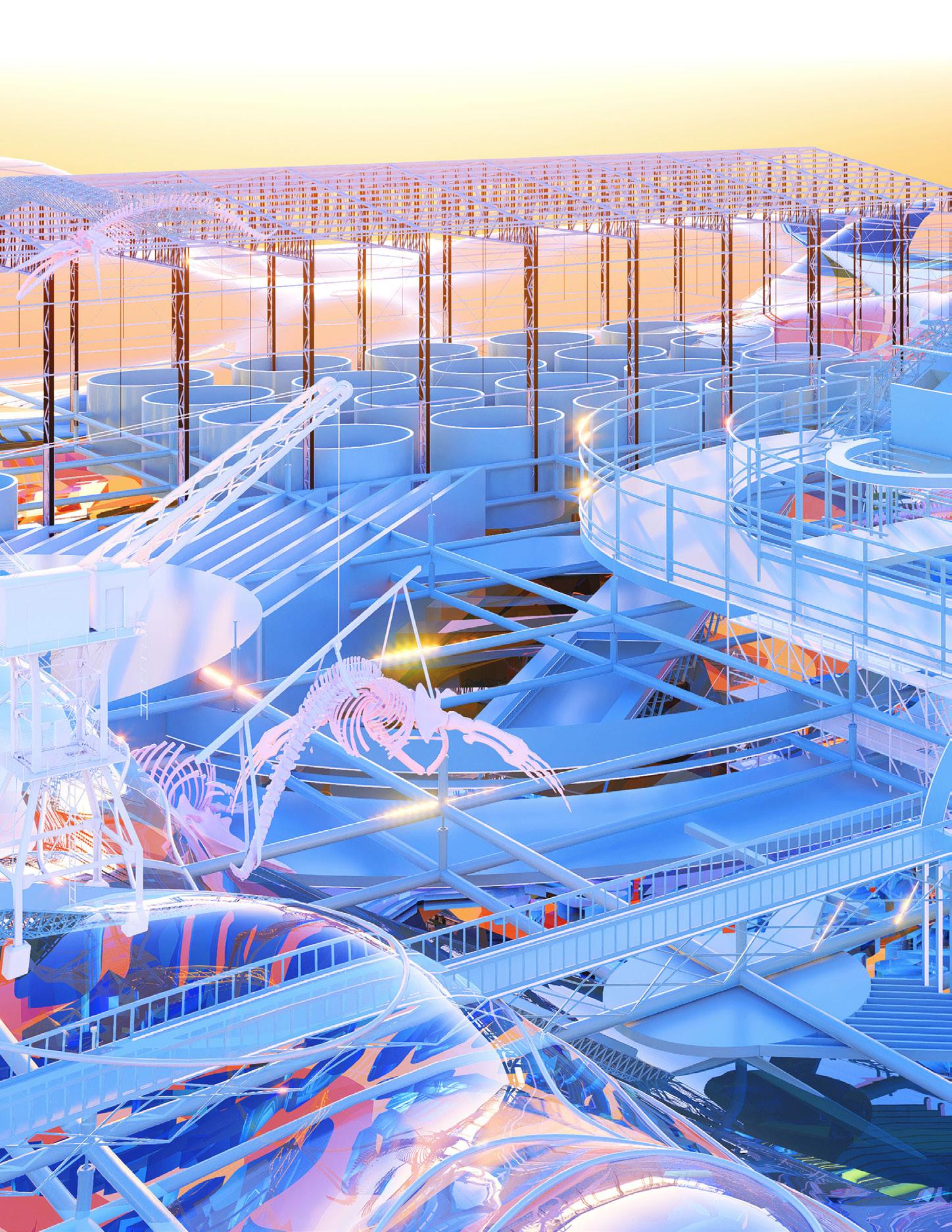
I could imagine an excavation site taking place within the synthetic desert. Between the slopes, the choreography of machines excavate remnants of whale bones for the ritualistic feast. Suspended abattoirs render protein from engineered fauna, while vapor farms siphon the last traces of moisture to add water for the fish hatcheries. A network of scaffolding carries the refined remains of these extractions upward, like offerings to the gods of decay and obsolescence. All of these food production leads to celestial offerings to the mythological gods above. What little remains is not waste but residue, a monument to consumption suspended in time.
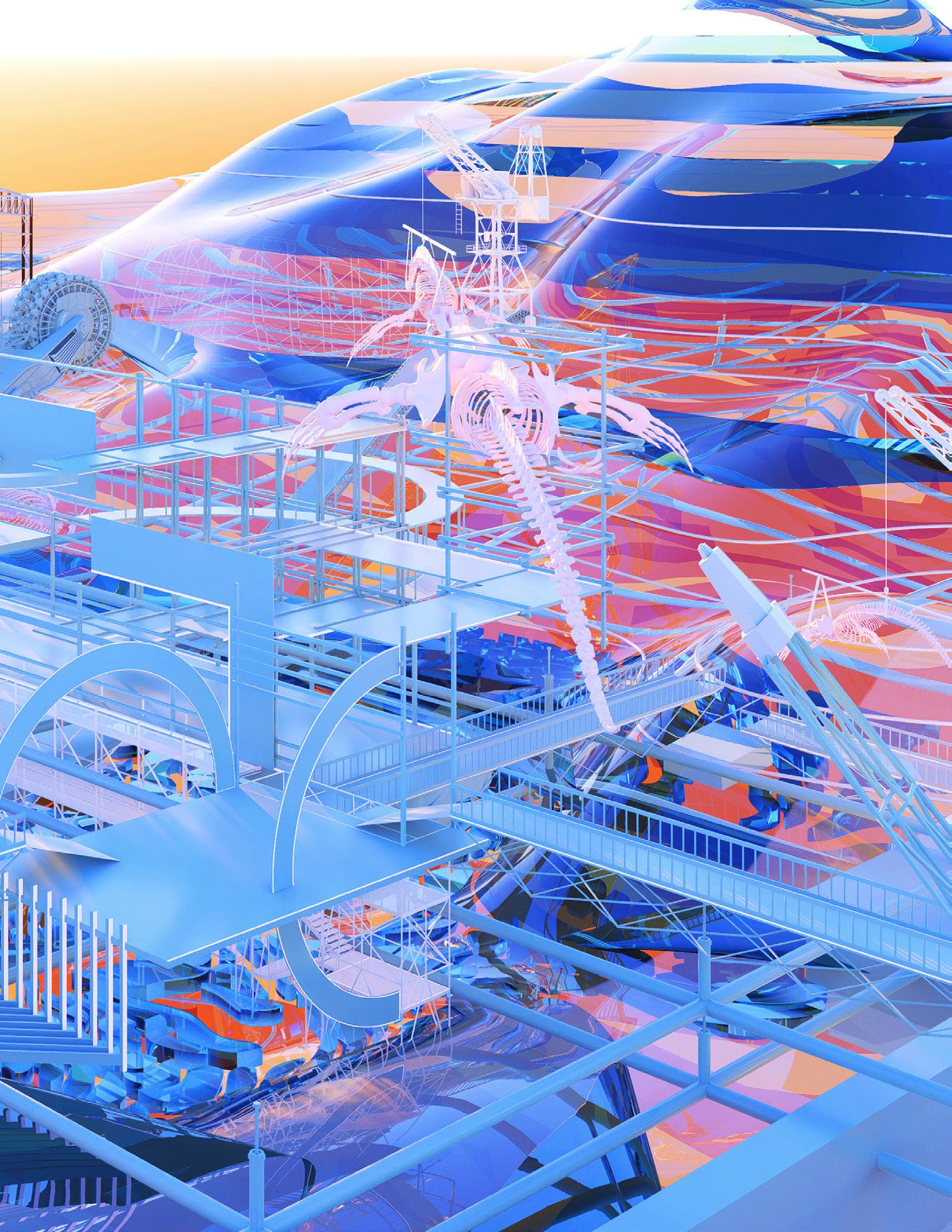
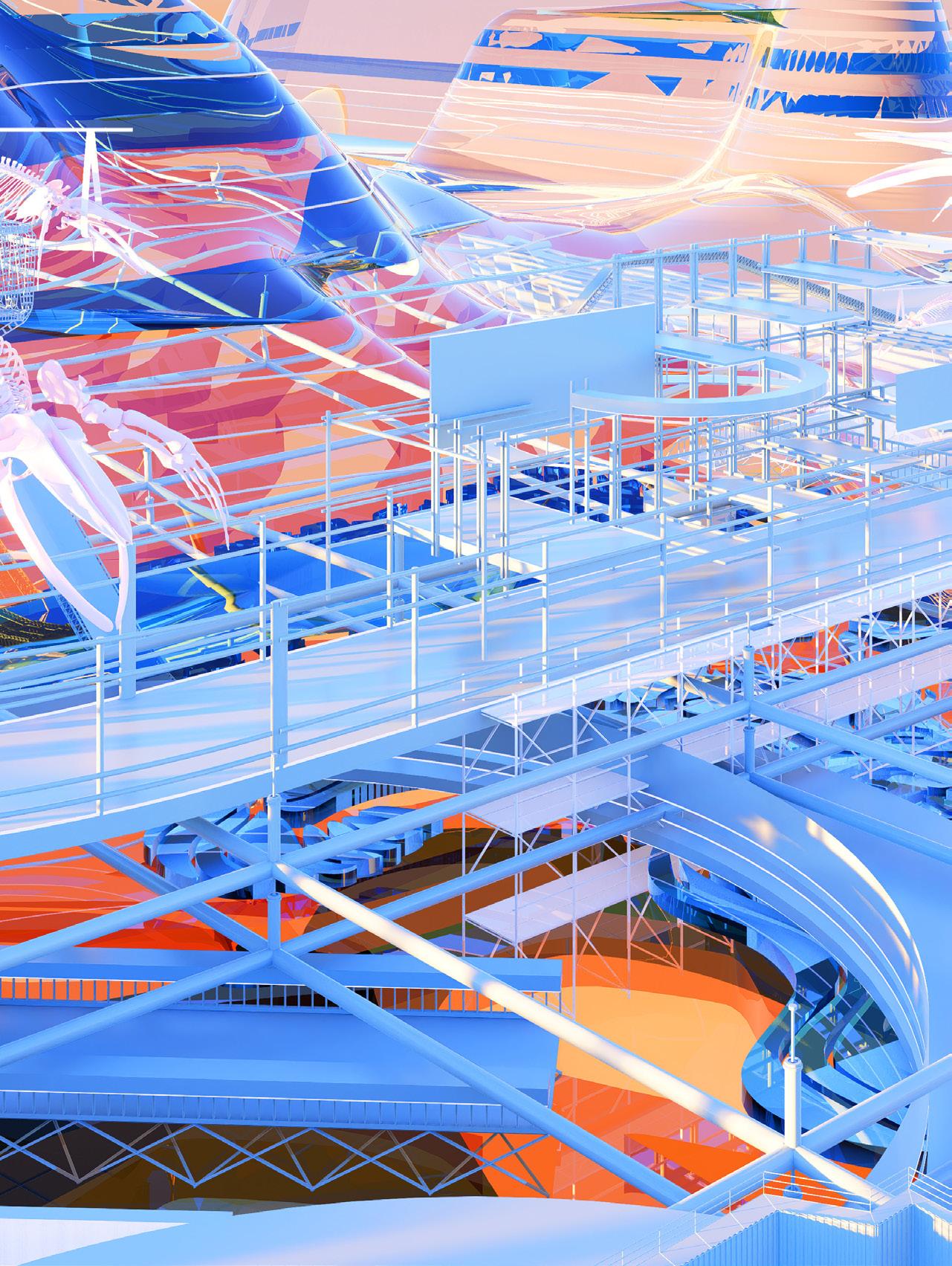
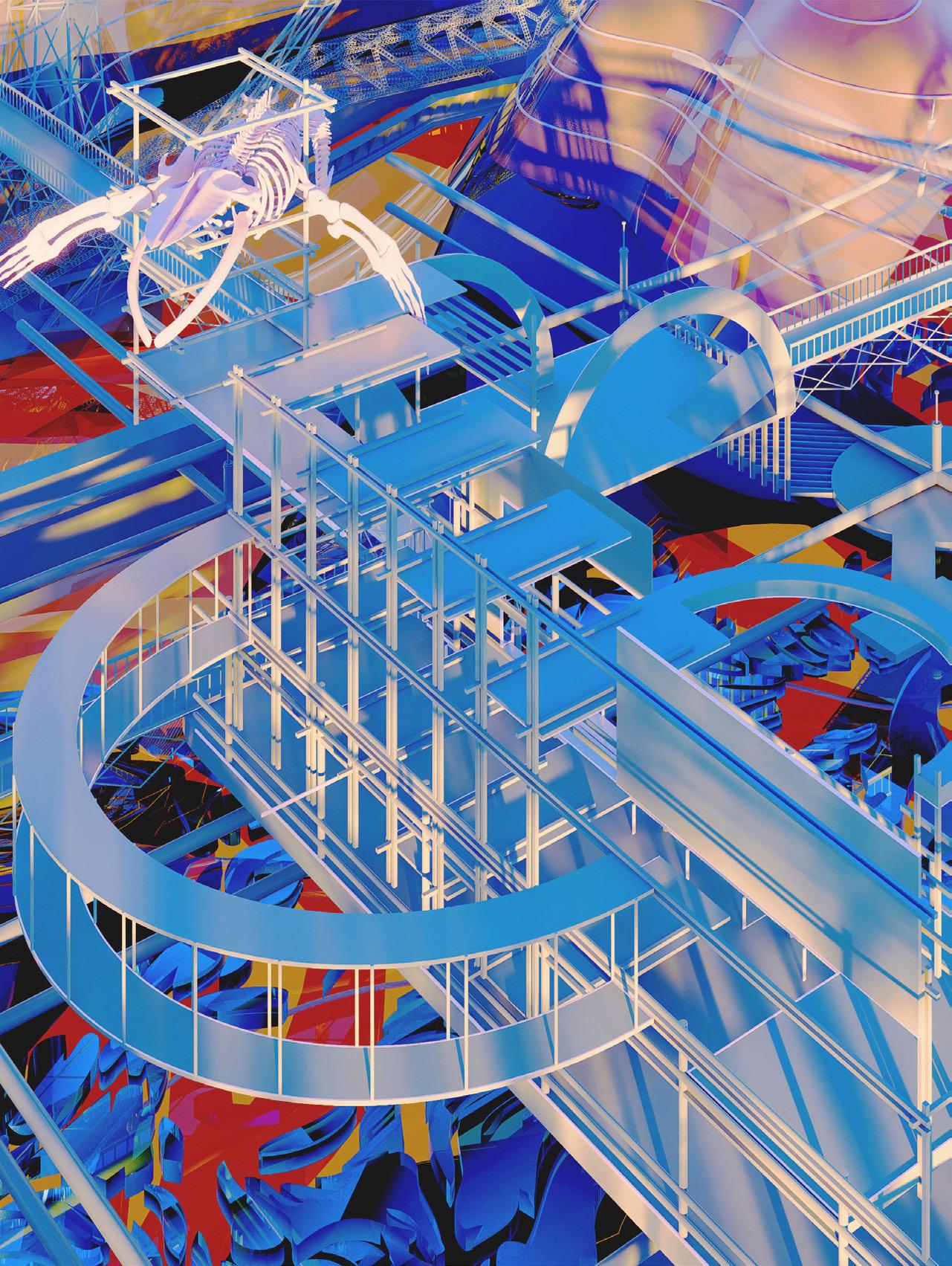
Professor: Alfonso Perez
Collaborator: Thomas Magee
The project, “Crossing Manhattan,” is a hotel concept that is aware of the various demands from New Yorkers and tourists that shape the contemporary urban experience. Furthermore, this hotel caters to the needs of the future city. Therefore, focusing on culture, transportation, and the built environment is essential.
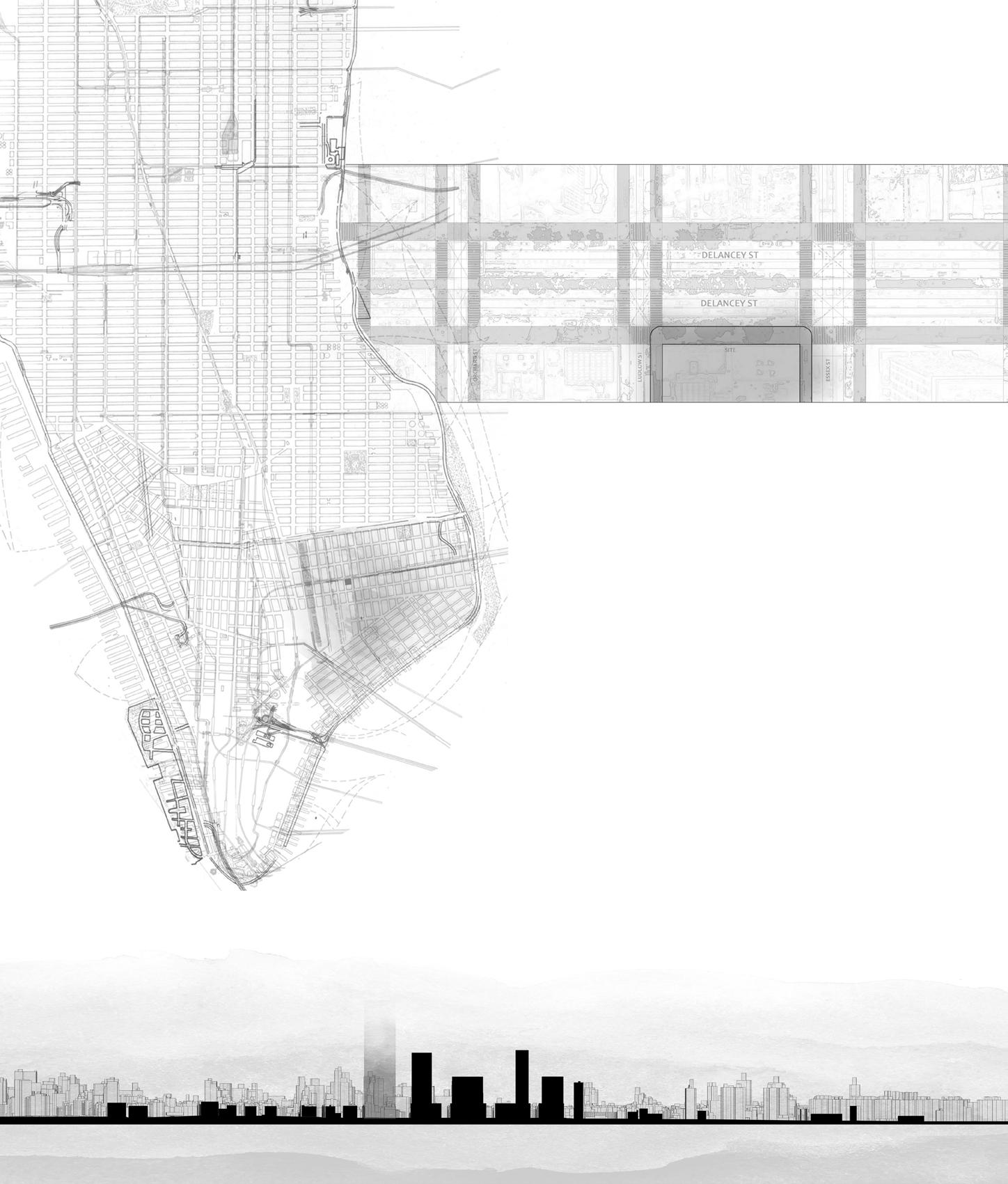
We have a unique site on a major roadway just off Delancey St. near one of New York’s few toll-free bridges, Williamsburg Bridge, making it a major hub of car, bus, and taxi travel. The Lower East Side is also very conducive to walking and biking, with a higher bike lane count than the city average. There is also an active and popular nightlife and thrift shopping scene. While most hotels in New York are exclusive, this hotel will be open to the public where people can enjoy the amenities of the hotel, which includes; the subway station, an art gallery, a five star restaurant and bar, and a hookah lounge.
Building Information:
Exploded Axon of Structure
Skin
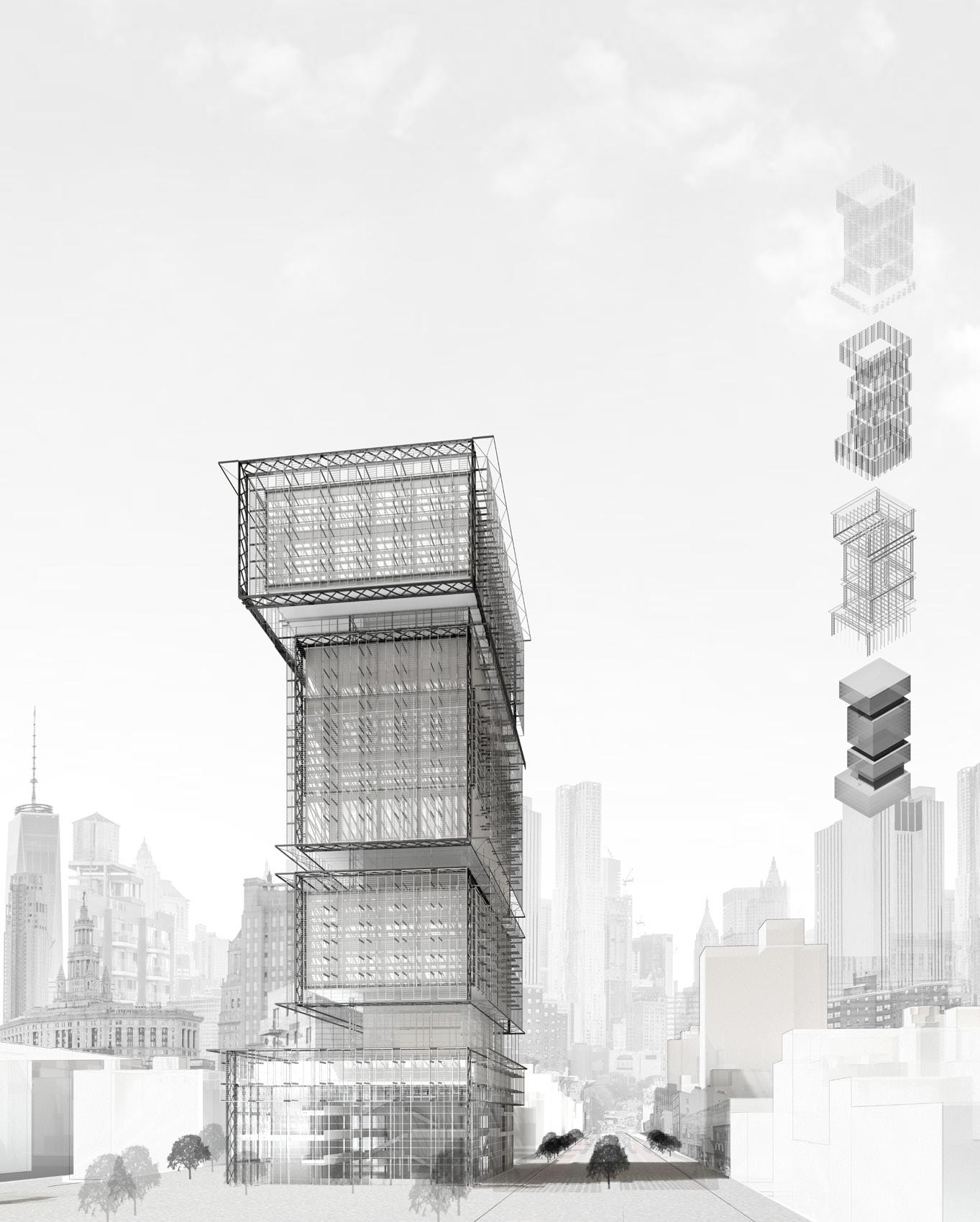
Secondary Structure
Primary Structure
Massing

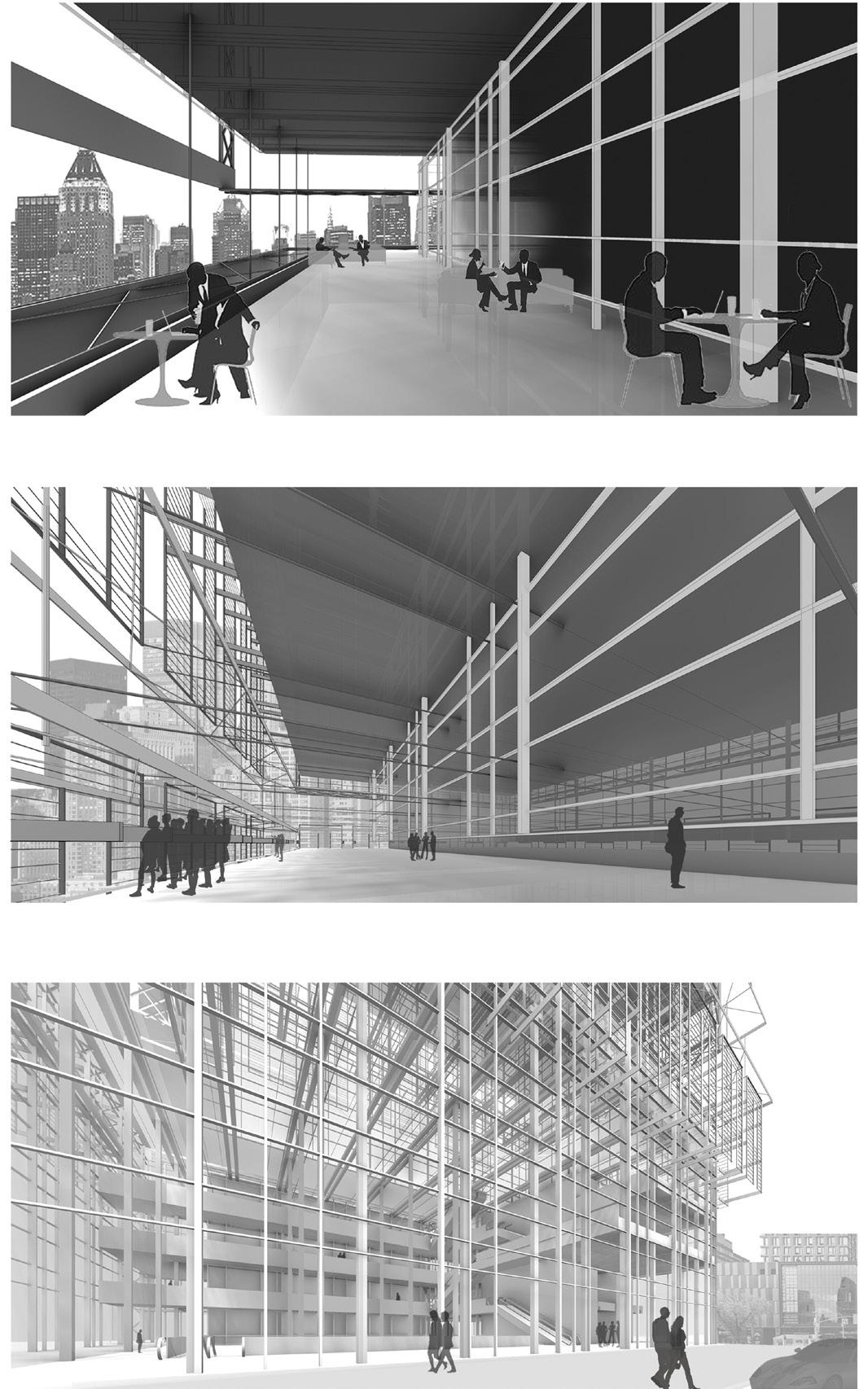
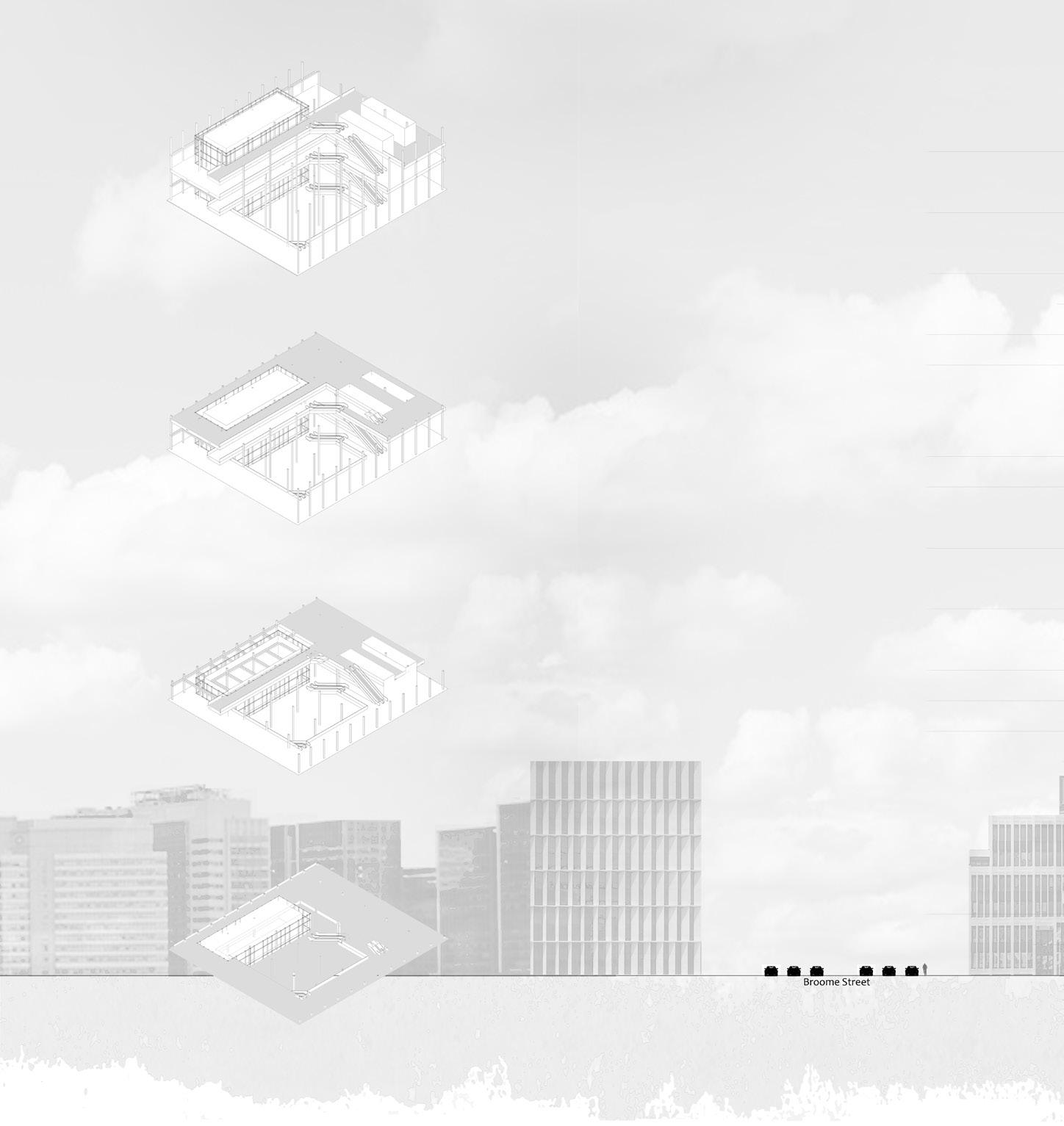
“Crossing Manhattan” deals with the phenomenological effects of movement in New York City. We analyzed how our site could serve as an epicenter for the city’s diverse forms of transportation. The site is directly above Delancey Street and Essex Street Subway Station, providing a unique opportunity to incorporate a station into the hotel’s ground floor to improve New Yorkers’ overall negative image of the subway. Therefore, there are spatial-like qualities similar to New York City’s Grand Central Terminal.
